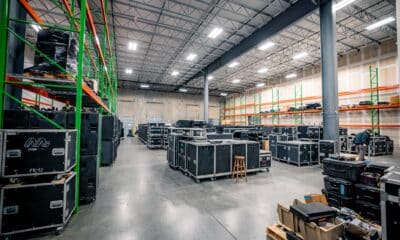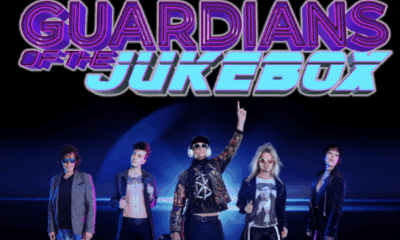Business
Burn The Ships: Alex Wright on Committing to Success & Helping Businesses Thrive
Published
2 months agoon
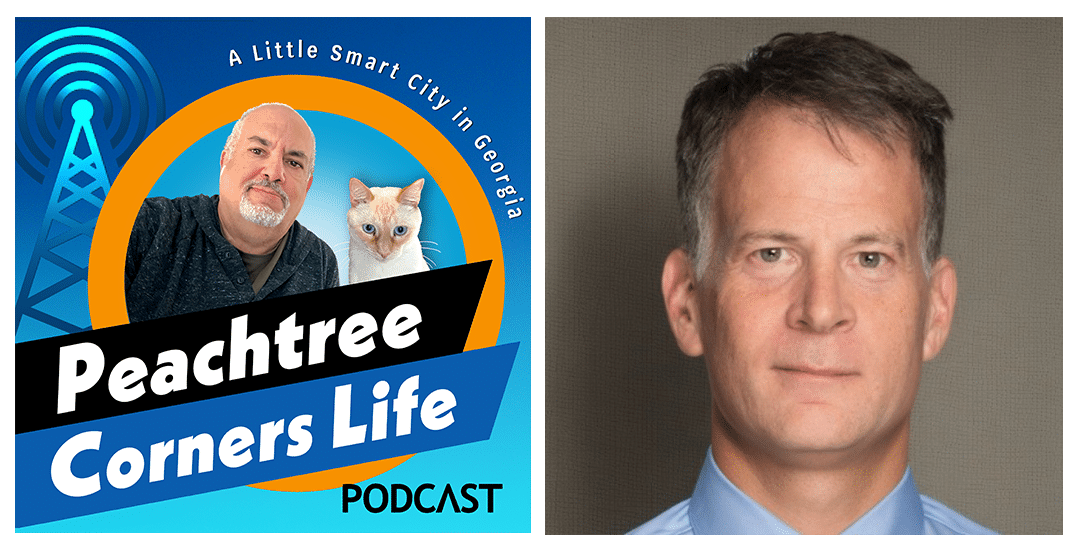
Discover how Alex Wright, a former U.S. Naval officer, founding member of the City of Peachtree corners, and corporate finance veteran, made the bold decision to “burn the ships” and launch his own fractional CFO firm. Burn the Ships Financial embodies Wright’s philosophy of unwavering dedication to success. Wright explains how fractional CFO services can help entrepreneurs navigate their financial journey, from basic accounting setup to high-level strategic guidance.
Resources:
Burn The Ships Website: https://burntheshipsfinancial.com/
Key Takeaways:
- Burn the Ships Mentality – Why Alex embraced total commitment when leaving corporate America to start his own business.
- Solving Business Challenges – How a fractional CFO helps entrepreneurs manage cash flow, optimize processes, and grow sustainably.
- Financial Storytelling – The power of translating financial data into actionable insights for business owners.
- City Leadership & Business Strategy – Lessons learned from helping launch Peachtree Corners as a smart city and how that applies to business growth.
- The Role of Technology in Finance – How tools like QuickBooks and Power BI can improve financial planning—if used correctly.
- Long-Term Business Planning – Why forecasting, budgeting, and understanding financial trends are crucial for sustained success.
Listen in as Alex Wright shares his journey from the military to corporate finance and now to empowering small businesses with Burn The Ships Financial!
Timestamp:
00:00:02 – Interview with Alex Wright
00:02:27 – From Naval Officer to City Leader, Alex’s Remarkable Journey
00:06:45 – Burning the Ships, Commitment to the Mission
00:10:39 – Solving Business Problems as a Fractional CFO
00:13:59 – Optimizing Business Efficiency Through Financial Analysis
00:18:14 – Guiding Entrepreneurs to Financial Clarity
00:21:30 – Providing Financial Guidance and Structuring for Growing Businesses
00:25:46 – Translating Financial Data into Actionable Insights
00:31:19 – Leveraging City Startup Experience for Business
00:37:43 – Helping Others Succeed From Military to Coaching to Entrepreneurship
00:42:14 – Expanding Startup with Passionate Partners
00:45:31 – Connecting with Burn The Ships Financial
Transcript:
00:00:34 – Rico Figliolini
Hi, everyone. This is Rico Figliolini, host of Peachtree Corners Life. I have a great guest today, this morning, Alex Wright. Hey, Alex. Thanks for joining me.
00:00:43 – Alex Wright
Hey, Rico. It’s good to see you again. Thanks for the invite.
00:00:46 – Rico Figliolini
Sure. We’re going to have exciting things to talk about. But before we get into that, I just want to say thank you to our two sponsors, EV Remodeling Inc. and Eli and his family who live here in Peachtree Corners and the company is based here. Provide a sponsorship to us for supporting our podcast and our magazines. And EV Remodeling Inc. is a company that does design to build. You need a whole house remodeled or you just need your bath remodeled or your kitchen, they’re the people to do it. They’ve done over 260 large projects over the past few years. And you should check them out. Great supporter of ours. Great people. Nice guy. EVRemodelingInc.com is where you can find them. Our second sponsor, Vox Pop Uli, is also based here on Peachtree Corners. Family owned, they are a company, if you have a brand and you want to bring that brand to life, Vox Pop Uli is the people to do it. They do, think about the truck wraps, car wraps that you see traveling around, trade show booths, signage, anything you need imprinted on any object imprinting. They’re the people to do it. You need a backdrop for you, 20 feet by 10 feet tall, they can do it. Any of those things that will bring your brand to life is what they’re doing. Challenge them, and they’ll come back and surprise you. They’re right here in Peachtree Corners and Norcross. So check them out, Vox Pop Uli, and the link will be in the show notes. But if you search them, V-O-X, P-O-P, U-L-I, you’ll find them. Thanks again for your support. So now we have Alex. So let me introduce Alex a little bit. He has a great background. He served in U.S. Naval, as a U .S. Naval officer back during the 90s. He was the founding member of the City of Peachtree Corners City Council and has been a city councilman here in leadership here since 2012 when he was first elected. He was also the guy that originated the idea of Curiosity Lab that set our path on being a smart city and on so many foundational parts that the Curiosity Lab has been involved in including autonomous vehicle, 5G technology, and all that. So without him, I don’t know where we’d be when it comes to that. Georgia Institute of Technology grad, so much more. He’s also a board member of the Peachtree Corners Veterans Monument Association, if you’re familiar with that and the monument that we have at Town Center. So now that I’ve given a really good background, I think, of you, Alex, why don’t you tell us just a little bit more about what what you’ve been up to and where where we’re going?
00:03:33 – Alex Wright
Yes, that was a great introduction. I wish my wife could have heard how great you made me sound she would’ve found that entertaining. Yeah so I, after I got out of the navy, you know I went to the graduate school and then basically the next 25 years was at various companies in corporate finance. Some big ones, Glaxo Welcome, which I guess that was GlaxoSmithKline, Home Depot, Equifax. And then the last 11 years was at a big consumer products company in a divisional CFO role. That was here in Atlanta. And about three, I guess it’s probably November, I made a decision to transition out of corporate America and with some colleagues of mine that I used to work with, formed a fractional CFO company. Some people refer to it as business advisory firm. And it’s called Burn the Ships. That’s the name of the company. And so, yeah, we’re in the process of just getting engaged in the community, you know, looking for companies that could use our services.
00:04:56 – Rico Figliolini
So tell me, I understand the burn the ships part, but really what inspired you to name burn the ships financial?
00:05:04 – Alex Wright
So, you know, when I was making the decision to leave corporate America and, you know, that’s kind of all you know, it’s, you get comfortable with that and to make that, you know, giant career change you know it’s, it can be kind of scary. And I happened to be reading a book at you know during this time when I was trying to figure out and do I want to do this and the name of the book was called actually burn the boats. And the book is about it’s written, I can’t remember the guy’s name, but he’s an entrepreneur serial entrepreneur and the gist of the book is not to have a plan b. And you can apply that concept to really anything, whether it be your marriage or training for an athletic event or starting a business, that something that’s going to be challenging and require your full effort in order to succeed, you can’t have that thought of, well, if this doesn’t work out, I’ll just go back to that. It has to be a total commitment. So that phrase is a metaphor for total commitment. You know, there’s a, not to go into much of the history, but, you know, the phrase comes from, not to go into a lot of history, but of Cortes when he was exploring the coast of Mexico. He had been tasked with that. And he gets there and discovers that, you know, there’s the Aztec Empire is there and decides, hey, I want to go into the bowels of Mexico and see what’s going on there. He just had a few hundred men with him. These guys that he had with them were apprehensive, obviously, because he wants to march into the jungle, the unknown. Plus, their orders were to just explore the coast. Well, his solution to that was, I’m going to eliminate the plan B. And the way he did that was he literally burned all the ships. There was now no way to go back. It was succeed or, in their case, die. So that phrase is about total commitment to the mission. And it really, at that time, it rang, just struck a chord with me as I was trying to make this decision because that’s a big change in a lot of different ways. And so I really just loved the story, that idea of total commitment. And so that’s the brief background or as brief as I could make it, where that phrase came from, because I just loved that story about the, you know, the commitment. Those other, not to go on a lot of my other, you know, kind of pursuits that I’ve got in my life, but, you know, different, whether it be especially like athletic things or projects, some of the things we’ve done with the city where it’s only going to succeed, you know, totally buy into, you know, what we’re trying to accomplish, the total commitment. So that’s the, that’s the name. And you know another, some of the advice I got was you need to make the name evocative so when someone hears that name, I think what does that mean? You know versus opposed to a right CFO services.
00:08:27 – Rico Figliolini
Yeah, no I totally agree with that branding is key to to a lot of what we do and get people remembering. And I can appreciate what you’re saying too because having, I mean I have not worked in corporate environment except for a couple of years. And I’ve been on and off a business owner and then working for a company and stuff. So I’ve been on both sides of that so it’s a little different. But you’ve, your whole career has been with corporate large companies, so I can appreciate that jumping off the ship almost and not going back is really scary, I’m sure. So your experience has been as a divisional CFO at least for the past decade or so, I guess. How do you think that that’s going to, how does that shape the services that you’re offering through Burn the Ships Financial?
00:09:23 – Alex Wright
So in this role I had, when people say, I worked in corporate finance, that can mean a whole lot of different things because in larger companies, the finance department’s quite large. So the role I had, in this business, and this company had probably 15 businesses, and as a divisional CFO, you’d be embedded in the business. And what that means is you’re at the table with the decision makers actually helping run the business. From generating sales to making, say, manufacturing more efficient to how can we ship more efficiently to negotiating with vendors for better terms, you name it. You had exposure to that. So the relevance of that is you’ve seen, now granted, maybe it’s a bigger scale, bigger numbers, but the challenges of making a business successful, you’ve had exposure to a full P&L balance sheet, just like for a small company. And so that allows you, the reason that’s translatable is ultimately what, when companies hire someone. As a fractional CFO, really what they’re looking for is I’ve got a problem. I’ve got a pain point and I need someone to help alleviate that pain to make that, help take that problem away. So it’s really about problem solving. So running a business in the finance role is ultimately about solving problems as well. So I feel like the skill set is very translated because that’s what I did for 10 years, which was solve problems to make the, our business more financially successful.
00:11:13 – Rico Figliolini
In the practical way, can you give us an example, without sharing the company you worked with I guess or you know particularly, but is there an example that you can give of how that translates in an actual real life story?
00:11:30 – Alex Wright
Yes. So now you know at a larger company it’s especially when it’s publicly traded, you know, it’s all about how do we get our earnings per share up? You know, the company is normally pretty stable. And like, say, a smaller company, they might, in some cases, might be fighting for survival in some instances. So a little bit different scenario, but ultimately it’s about how do we make the company more profitable, whether it be small or big. And so an example of something we did at this larger company is, we were in a market where there wasn’t a lot of growth on the top because it was an industry that was actually kind of shrinking. So how do you grow profit if your top line is stagnant at best or maybe just growing through price increases, very low single digits? So one of the things that you could look at is, let’s look at our product, the actual composition of the product. So we are actually a manufacturer. Are there ways that we can make the product that we’re producing less costly, but hopefully in the process also make it more effective? And so in this instance, the product in this case was grass seed. You’re thinking, well, what can you possibly do to grass seed? But in today’s world, they actually take the grass seed and they put a biostimulant around it so that when the seed goes out, it has a much higher probability of germinating. So what you would look at is, what can we do with the stimulant to change the makeup of it, change the composition where it’s, maybe the germination is even higher, but we’ve substituted some type of material that costs less. So in those instances, you’re working with an R&D department, you’re marketing people. And so in this instance, we did that over a series of five years, switched all of our, you know, changed the composition of our products. And so the ultimate takeaway for that was we increased the margins for the business by about a thousand basis points. So what that means is let’s say your margin was 30%, now it’s 40%. So that’s, and that drops straight to the bottom line through that. Something is, it wasn’t simple, but you know, instead of saying, well, there’s nothing we can do because we’re not growing is to basically look at everything on the pan out. What are, you know, areas that we could look at? I mean, you could apply that to your own personal life. I’m trying to cut back on spending and you go through and look at every expense and explore it. And maybe we don’t need the 1G, you know, internet. Maybe we just need the 500 megabytes and, you know, no stone uncovered. That’s the way we had to operate and I think that’s very translatable skill for smaller businesses because most likely they’re going to be even more cost conscious than you know a bigger company that’s got you know, more resources at their disposal.
00:14:45 – Rico Figliolini
So it’s really looking closely not just at the books but at the process of what companies do, right?
00:14:52 – Alex Wright
That’s exactly right. So one of the things when I’m, and this is before I transitioned, you know people would say well you know what does finance do? It’s just kind of this broad term and I would always describe it as in three pieces and it’s very simplistic, the first the most basic part is the gathering of of information. And that could be billing AR, AP like in a big company that’s completely automated, smaller company it might not even really exist. The next level is you’re taking that information, you’re analyzing it, you’re putting it into a reporting format. At a bigger company, not completely automated, but mostly automated. At a really small company, especially like reporting, the small business owner, his financials might be his bank statement. That might be the limit of what he’s got. And the third part, and this is really where finance differs from, say, accounting, is. You are going to the decision maker and you’re saying, hey, if you pull this lever, this will happen over here. You’re giving them actionable data, advice, if you will, on how to drive the company, whatever the company’s financial goals are, giving them suggestions how to do that.
00:16:17 – Rico Figliolini
So it’s also, I guess. You know, if I look at it from what I do a little bit, from my business and stuff, every business is somewhat the same to the degree there’s peaks and valleys. You might not always have the same trend line of revenue coming in and stuff. So it’s finding how to maximize the use of the money that’s coming in and the money flowing out. Maybe it’s the manufacturing or the service side and how that’s being done. Whether that’s parts being delivered or how it’s being ordered and such. So you’re looking beyond just the numbers on the books. You’re trying to optimize the way a company’s doing business behind the scenes.
00:16:59 – Alex Wright
That’s right. And that’s the thing I was talking about being embedded in the business, being part of the decision-making is, again, looking at the full P&L. You’re not just reporting the news you’re trying to influence what’s going on. So you might be looking at in the course of a day okay how do we make our you know logistics more efficient. You might be looking at hey what’s the ROI on this marketing spend. You know any anything you can do to you know drive profitability. And that you know I guess that’s one of the upsides of a publicly traded company when you’ve got that pressure that quarterly pressure if we got to make earnings you know you’re looking at anything and everything all the time. Now there’s downsides to it because sometimes to make the numbers look a certain way things will be done that maybe aren’t super logical but you still have that relentless pressure to become more efficient to drive costs down as much as possible.
00:18:02 – Rico Figliolini
I think with certain types of business, like you said, the private business, smaller businesses, the owners tend to, the job keeps going, right? Three years will pass before you know it. Maybe they’re not optimizing their cash flow properly. Maybe they’re doing the work, if you will, and not really looking at everything because money’s coming in. Everything seems fine. They may not see even the trend of how things are going where maybe it’s going bad, but they’re not seeing it yet because maybe they have the revenue there. The cash flow is there. They might not see it for the next three months. And all of a sudden, they start realizing, whoa, this is bad. We’re beyond, why didn’t I see this before? So how does the aspect of what you do as a fractional CFO, let’s say, how will you give that foundation to these businesses? What’s the process, if you will?
00:19:01 – Alex Wright
Well, I think that obviously each company is different, right? You have to go in and see what, if any, processes they have. But I think if you make the assumption that they don’t, kind of your point, they’re just, you know, you’ve got this entrepreneur. They’re really good at making pencils. And that’s what their total focus is, selling those pencils, just growing, growing, growing. You know, they don’t really have a whole lot of time to, you know focus on the finances other than making sure they got enough money to meet payroll or buy anything. I think the key thing when you go in, in a situation like that is, you know, to talk to the owner or the founder, you know, understanding what is it that, you know, what are your, you know, try to define the goals besides just staying afloat, you know, kind of help them sit down. Okay. Let’s put this pen to paper. What is it you’re, I’m going to make something up, okay you’re doing 500,000, million in revenue and you want to get to a million and a half in two years. Again I’m just making this up. You know in the larger company it would be you know to be a budget or they’d call it a you know five-year plan it’d be some kind of structure you know a guide post if you will. I think that’s the, I mean you could apply that to your personal life. Like okay I’m trying to you know, retire at age 65 or I’m trying to lose 20 pounds or whatever it might be, whatever that you’re trying to accomplish. You’ve got the saying about if I fail to plan, I plan to fail. So I think that’s the key thing is to understand from that owner what it is you’re trying to accomplish. And then once, because ultimately it’s their business, you’re there to help them be successful. So once they’ve articulated what those goals are, then one of our jobs would be, okay, let’s lay out a plan to see if we can get to that. Because in some cases, you know, my experience has been people that are entrepreneurs, when it comes to forecasting financially, they’re not always the most realistic because they’re normally going to be really optimistic. I can conquer the world, which is you need that to be an entrepreneur. But one of the jobs of finance is to kind of poke holes in arguments, not to discourage people, but to make people think realistically, okay, can we grow from a million to a million and a half in two years? Understanding, you know, what is there a path to do that that’s realistic? And having those conversations with, you know, with these guys, because in some cases you’re bringing up things that maybe they haven’t thought about because they’re so focused on the here and now versus looking a year or two out that that’s just not really what they’re focused on because, again, they’re trying to grow the business.
00:22:08 – Rico Figliolini
So when you come into a firm, for example, you know, obviously people, you know, you want to build that foundation without the cost of a full-time CFO. I mean, that’s the idea, right? So work with me for a minute. In an ideal world, you would come in for a few hours or whatever that first month and then how would the rest of it work like is there a maintenance level that you provide? Quarterly stuff you provide? So give me in brief what that would look like to someone.
00:22:45 – Alex Wright
Right. So again, each company is going to be different but really kind of two levels, and I’m simplifying this, but really two levels of service. And you can pick one or the other or both. So let’s assume we’re talking about a company that we used an example earlier of the finances are literally the bank statement. I know how much cash I got. That’s kind of an extreme example. So we use that one as our example. So in that case, they don’t have a P&L or balance sheet. They don’t really know what’s going on other than, you know, how much cash they got in the bank and maybe in their head, they’ve got kind of a gut instinct of what’s going on. So in that instance, you know, you’re going to have to come in and create a structure that will allow you to build a P&L, which is, you know, the foundation of any type of forecasting or budgeting. You’ve got to have that initial document. And to get to that, you’ve got to go in and take basically all their transactions that, you know, are in their bank statement and create what’s called a trial balance, which is going to have a chart of accounts. Basically, all that is coding where, you know, okay, this is travel and this is, you know, sales and it’s basically, you know, accounting 101, right? And so that base level of service would be something like that plus reporting that goes with it. And that reporting you would get through programs like Microsoft power BI that can do you know anything at the like that but you’ve got to have the you know the numbers formatted. So that would be a basic level of service and the first time that initial transition that would be time consuming because you’ve got to you create something, a structure that’s not there before. But then after you’ve created a structure you know each month you’re just really just updating, you know the results putting them into a P&L format. And if we think back when I was talking about the three levels of finance that’s really like the first two levels combined. So that’d be like a fixed fee you know for that service almost like a subscription. The second level of service it’s more like what that kind of like that third level I was talking about before where you’re sitting down with the decision maker and you’re telling them hey, this is what’s going on with your business. And depending on if they wanted to have, layout objectives, then you talk about the progress each month of how are we progressing versus these objectives that we’ve laid out. And if we’re off course, what things can we change to get you back on course? And so that would be an in-person review where, the analogy I use is that movie, The Matrix, if you remember, they’ve got all the data that’s doing this, right? You can’t read it. And so if you’re not in finance, often people struggle to, you can give them 20 reports, but if they’re not a finance person, they’re often going to be like, I don’t really understand what this is telling me. That second level is, it’s really about storytelling, where you’re taking the information and you’re telling the owner a story, you know, not in a fictional way, but this is what’s going on with your business, but you’re translating it in a way that is easy for them to understand, versus if you’re just talking about debits and credits, they’re going to be lost with that.
00:26:21 – Rico Figliolini
So if they already have QuickBooks online, for example, they’re already getting reports, you’re at that stage already, but you’re able to tell them more than that, what the reports give them in numbers, because you’re looking at all of it, right? Holistically almost.
00:26:38 – Alex Wright
That’s correct. So you know a lot of companies will have you know they’ll have a controller, bookkeeper, you know maybe both of them. And so in my you know previous life I had plenty of accountants that worked for me and really what their job, and I’m simplifying and this isn’t to say anything negative about accountants, like I said I’ve worked in accounting. But their job really is to tell you okay this is the number and this number is correct. But if you ask them well okay that number is that’s a number ten, last year it was a five, why did it go from a five to a ten? That’s really not what their role is in most cases. So they’re challenged to you know explain the why part of it right? And so that’s where, that’s really where finance comes in to explain what is going on. And not just report.
00:27:36 – Rico Figliolini
And not just explain it. I would imagine if, from my point of view, you might explain why that went from a five to a ten, but you should probably be able to give me advice on, you know, where can we take that from now? You know, why is this? I know the difference is there. I knew it grew. Maybe it grew for this reason, but you might be able to tell me how we can adjust that, right? I mean, the whole idea is, for you to provide guidance. So almost like a, what do you call it? A person that, the accountability partner, if you will, in this.
00:28:15 – Alex Wright
Yeah. Well, that’s the great thing about, you know, having a budget is that you’ve, again, we were using examples earlier, but you could apply it to different parts of your, you know, personal life, but having that objective. If you don’t have that objective, then you don’t really know. It’s like driving a car. You’re trying to get somewhere, but you don’t have a map. You’re going to struggle without that map to point you in the direction you’re trying to get to.
00:28:45 – Rico Figliolini
So now we’ve got here, does technology play a part in what you do as well in financial advisory or in this type of field?
00:28:59 – Alex Wright
So the, remember when earlier I was talking about the kind of the three levels of not services but you know what finance does, and what’s occurred over the last 20 or more than 25 years is that systems like say SAP or Hyperion or for these large ERPs is they have really kind of flattened the work structure of companies because what they’ve allowed is it’s really like an early form of AI. Is they automated you know tons and tons of functions that before there would have been literally like armies of people you know just doing kind of mindless work almost and so technology, now some of these small companies you know they’re not going to have an SAP or Hyperion but when we were talking earlier about power where that’s like Quickbooks but on steroids the kind of things that can do. But the reality is, whether it be QuickBooks or Power BI, if you don’t have that basic level of the information formatted, the magic can’t happen without that. So ultimately, at the smaller companies, there is some manual aspect of, I’ve got to code this expense correctly, input it. So the technology, at a smaller company, you know, that doesn’t have an SAP or Hyperion or Oracle is really more in the, you know, the reporting phase, the things it can do once the numbers are formatted correctly. It’s almost mind boggling now that the danger there is you can have too many reports. I can produce 30, 40 reports, but it’d be too much, you know, information. And that’s the, so when people talk about, well, I got QuickBooks. or even got Power BI, if you don’t have someone there to interpret it for you, to say, well, this is actually what this is telling you, it’s a very limited value. Like we were, again, using the Matrix example of it’s great, but if I can’t take any actions based off of it, then I don’t really want to do it.
00:31:15 – Rico Figliolini
Right. And I can see that in a world where a company might have two, three, or four different credit lines using them for a variety of reasons. Well, the financial planner might come in and say, why do we have these two where your APR, your interest rate is this high, you’re actually utilizing the wrong credit line or, you know, there could be a variety of things there, right? Let’s look a little bit at experience. As a founding member of Peachtree Corners, the city of Peachtree Corners since 2012, how has the involvement in local government influenced your business perspective? Has that influenced it at all? And where does that go?
00:31:57 – Alex Wright
The thing that I, kind of a, not a comparison, but an analogy is, I was talking to someone about this the other day where we started the city. There was an election to whether to have a city, and then there was an election to elect a council. So we had seven people who, for the most part, didn’t know each other. And I mean that was the city, there was no city staff there was no anything. So the reason that’s relevant it’s almost like a startup where we’re like okay we need to find someone, it’s like you don’t know what you don’t know. You had to go find people to kind of help us get started and then there’s those growing pains of whether it be the relationships amongst the council or you know finding the right people from a staff standpoint to be part of a city startup because if you think about all the cities in the country, very few new cities. That idea of a new city, it’s not unique to Georgia but you know prior to say like 2005 that wasn’t something that was happening here. So it’s that, there’s only certain people that want to take that risk. I guess it was kind of like going from a big corporation to a startup, it’s you got to have the right you know mindset and you know kind of fire in your belly to do it so it’s being part of something and seeing it grow from you know literally the seven of us in a room one day like meeting each other to you know what there is now. It’s what I envision starting a company would would be like. And you know maybe the the comparisons aren’t you know the correlation not completely you know accurate but I would think for sure there’s some you know similarities those same kind of decisions we had to make about bringing the right people in at the right time and you know just being able to get along. Because at a smaller company I would think those relationships are, the importance of them are more pronounced because there’s fewer people. Versus at a larger corporation not that the relationships aren’t important but you know the success or the failure of say like working at the home depot headquarters is it going to be based on you know just a you know my relationship with somebody because there’s 400,000 people that work there.
00:34:17 – Rico Figliolini
Yeah, I think part of it too is you’re starting, you know, the city started with just, you know, with a certain amount of revenue because it took over some of that revenue being a city, franchise taxes, business licenses, but you also grew into a budget. And then as the city grew financially, I know it’s not a business, but you all treated it to some degree as a business, right? You didn’t spend money you didn’t have, or if you did there was a reason you knew where the revenue might come in from whether it was a grant or a loan or whatever it was. I’ve got to say that the city has overall done it responsibly. So has any of that informed the way you know or have you used your experience there you know working with that type of finance too?
00:35:08 – Alex Wright
So, you know the analogy I use sometimes with people is like the city council relationship, say, to the city manager is similar to in a company, a board of directors to a CEO. So that, you know, being a role, you know, because I was never on a board of directors at a company, you’ve got to be way up or probably older than me normally, you know, to be in that role of coming up with policies and then entrusting someone to execute those, you know, definitely gives you a different perspective. You know, running an organization because my career had been on the implementing people’s policy, you know, taking that directive from on high and implementing it and, you know, bringing it to some results. So to have that perspective from the other side has been, I think, good because, you know, I sit there and think about not too many people get that opportunity to be on the other side of the, you know, the table, if you will, to come up with policies. And trust other people, find the right people to enact those and make them successful.
00:36:20 – Rico Figliolini
Going from other experiences, your military service as a naval officer, has that also provided any experience that you’ve drawn on? Excuse my black cat.
00:36:34 – Alex Wright
No, you’re okay. That was a little more tricky. I think the thing that, where that part comes in, and this was really more about, you know, the why of, you know, I wanted to get into this type of work. Because when I was making the decision to leave corporate America, you know, I was in a position from a career standpoint, financial standpoint, a personal standpoint, you know, kids rolling off the payroll. There’s an opportunity here to do something different. And I did a, I don’t know if you know what a SWOT analysis is, but strengths, weaknesses, opportunities, threats, did like a SWOT analysis of myself and thought, what is it that, you know, now in this situation where I don’t have as much responsibility as far as taking care of other people, like what really brings me, you know, satisfaction, fulfillment, besides just, you know, helping a company get that EPS each quarter. And, you know, the common theme as I looked at all these different things I’ve been involved in. I looked at my military experience, looked at serving on the city council. I looked at the 20 years I coached kids sports. All three of those things are thinking, how the heck are those three related to each other? But the common theme, because each one of those brought me satisfaction in different ways, was that you’re helping other people in each of those instances. You’re serving other people. You’re making other people either successful or in the case of, you know, the military is really about, you know, serving the nation, but it was doing stuff for other people. Again, differently. And I thought, how do I take these skills that I’ve built up over 25 years and do that in a way where I can help other people be successful? Because one of the things I would constantly hear from small business owners is, we were kind of talking about it before where they’re really good at you know that making the pencils or whatever it is but they struggle with finance because that’s not what their you know expertise is. And in a lot of instances can’t afford you know to bring somebody in or they don’t they don’t need someone full-time. And as I learned more about that industry I thought this could really fill that that impulse, if you will, you know, I’ve got about how can I help other people be successful? And in a way where you go in, you take this person’s got their whole life’s work tied up in this business. Their heart and soul in it. And to be able to go in and help them eliminate or alleviate some of their pain points that are preventing them from being successful. That really appealed to me much more than, well, I’m just going to go back into I’m going to call it the matrix of corporate america life we’re just going to you know get that EPS up three cents. You get to a certain point in life where like I’d really like to a bit of focus more on giving back. Just like with the you know city council it pays eight thousand dollars a year an occasional free t-shirt but you just have a great sense of satisfaction when you go out to the Town Center and you see like the the playgrounds and stuff we’ve built out there and you see all those people enjoying themselves you think you know I had a some small part of you know bringing that you know joy to these other people so it’s that same you know you want to do the same thing but in this different you know industry.
00:40:16 – Rico Figliolini
Now and I can see that. I mean you brought a lot, you’re passionate about the things you do. We were talking about a little bit about the industries that you’re passionate in, the areas of like CrossFit and stuff. So, you know, a person that’s driven that way and that’s sharing. I mean, you’re doing the Memorial Day Challenge for kids on Fort Payne, which is our obstacle course. That’s probably one of the best in the city, if not the best. So I can see that. I mean, giving back to the community and all that. And working with entrepreneurs, startup businesses, or even just businesses that have been around for a while, providing them with information. And you’re right. Some people, number one, either they think they can’t afford it, but they really can’t ignore it, right? Because if they’re going to grow their business, they really need to know what those numbers mean. And, you know, I mean, you’re right. Bank statement or even a QuickBook report. I mean, fine, so you can see your business is growing, you can see its profitability, but you may not see the things that are coming, which those numbers can tell you. It’s almost like being a futurist with it, right? Or being able to tell the future with numbers, if you will. And those numbers don’t lie to a degree. So giving back to the community as a business leader, as a political leader, I mean, I know that’s part of what you do. The relationships you’re building with Burn the Ships Financial, I mean, you just started out. This is your first few months in business. And you want to be able to give the feedback that you can to them. So tell me what, you know, what do you look ahead? What’s your company’s long-term goals? We’re towards the end of our interview here. So I just want to know where you think you’re going, where you want to be in a couple of years. What type of clients, what industry maybe. What do you want to be? Tell me.
00:42:24 – Alex Wright
So one of the things that I’ve done you know as I was learning about other companies that play in this space you know some of their you know limitations whether it be bandwidth or skill set. One of the things I did is I reached out to a lot of former colleagues and said hey would you be interested in going on this journey with me? Like hey, don’t quit your job but you know would you like to you know partner with me on this? And literally every person I reached out to was like, yes, I would love to do this with you. They were very excited about it. The reason that’s relevant is, it gives us a scope of skills and bandwidth that I would argue most of these other companies just don’t have because they don’t have access to these people that have worked in companies. The reason I mentioned that to your question is, some of these folks that are really you know fired up about you know doing the business initially, I was just, I’m just going to do it myself and take on four or five six customers you know that have compelling stories but as these other folks really wanted to get involved you know I’ve been rethinking that just see how things go but you know it could be that things take off and we’re able to some of these folks come on board we might you know make it a bigger plan. I just wasn’t expecting the level of response I got about how excited people wanted to do this as well. So that’s TBD, obviously. We’ll just see how that goes. But money is a very personal thing, whether it be our personal money or a business’s money. It’s really about trust. And obviously, you’ve got to build that over time. I’m anticipating, you know, it’s going to take several months where, hey, you got to inform people they have moved into this space and you’re spending a whole lot of time meeting with people and just telling them what I’m doing and, you know, getting the word out that I’m here to, you know, get involved to help people be successful. So we’re just, we’re going to have to wait and see how that goes. See what kind of growth opportunities there are. But, you know, Peachtree Corners, that’s over, I want to say about 2,500 businesses. They’re not all in the space that I’m looking to get involved in, but it’s a great location to be in, in terms of this industry.
00:44:51 – Rico Figliolini
For sure. We’re a growing city, so it’s never-ending. We’ve been speaking to Alex Wright with Burn the Ships Financial. Just started a startup of his own. A city councilman with City of Peachtree Corners here as well. Alex, I appreciate you being with us. Can you tell people where they can find more information about you, your website, your contact info?
00:45:15 – Alex Wright
Yes. So website is just like the company name, Burn the Ships Financial. We got that up a few weeks ago. And that’s probably the best place to go. It’s got my contact info and some of my partner’s contact info on there. Yeah, that’s going to have all my info. I was going to say you could go to the city website, but at this point, everything you would need would be on the company website.
00:45:46 – Rico Figliolini
In fact, on the homepage, there’s a phone number, email address, and a schedule a consultation button. So it is burntheshipsfinancial.com that you should all visit. And check out Alex Wright and his team and the services they provide. Hang with me for a second, Alex, but everyone else, thank you for joining us. Appreciate your support. Appreciate the support of evremodelinginc.com and Vox Pop Uli as well for supporting our podcast as well as the magazines and the digital work that we do, newsletters and all that, and the journalism that we produce. So thanks again to everyone. Alex, appreciate you being here. And if you all have any comments, leave it in the comment box, depending where you are. YouTube, Facebook, or just email Alex and he’ll be able to answer your questions.
Related
Business
Music Matters Productions Expands Peachtree Corners Headquarters
Published
5 days agoon
May 21, 2025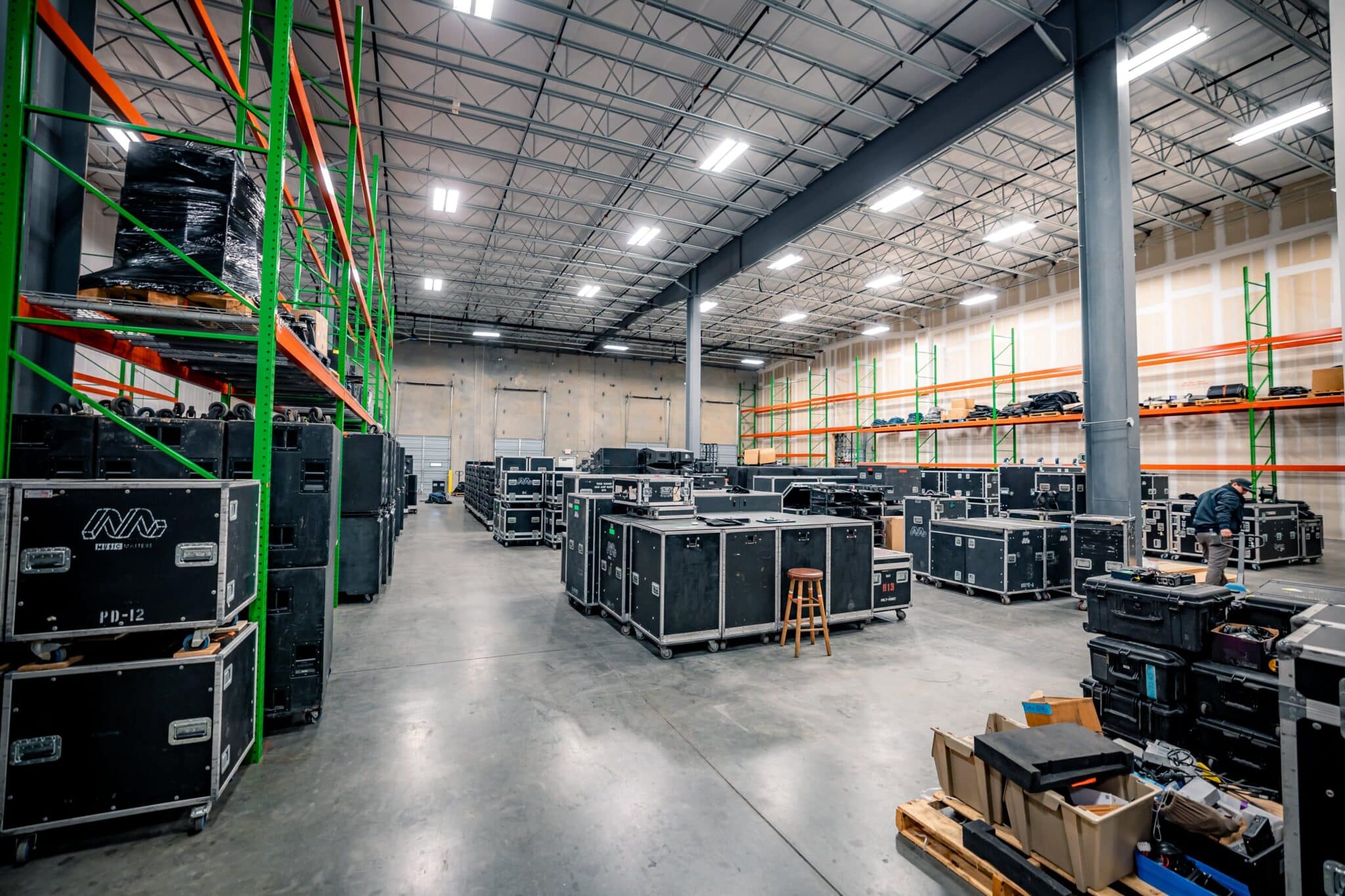
Company adds 20,000 square feet to meet growing demand
Music Matters Productions (MMP), a premier provider of audio, lighting, video, staging and rigging solutions, has expanded its metro Atlanta headquarters, increasing the total warehouse footprint from 40,000 to 60,000 square feet.
In addition, MMP has opened a second 10,000-square-foot building directly across the street to house its growing corporate production division.
The expansion comes in response to increased demand across touring, festival and corporate markets, as well as the continued growth of MMP’s high-end gear inventory. With a fully dedicated shop for each department, including audio, lighting, video, rigging and staging, the new layout provides more space for show prep, pre-rigging and crew coordination, allowing for even more efficient load-ins and streamlined execution.
New features
The rigging department now features a new mobile motor hoist test stand, allowing for in-house motor certification, a service that’s now available to external clients in the production community.
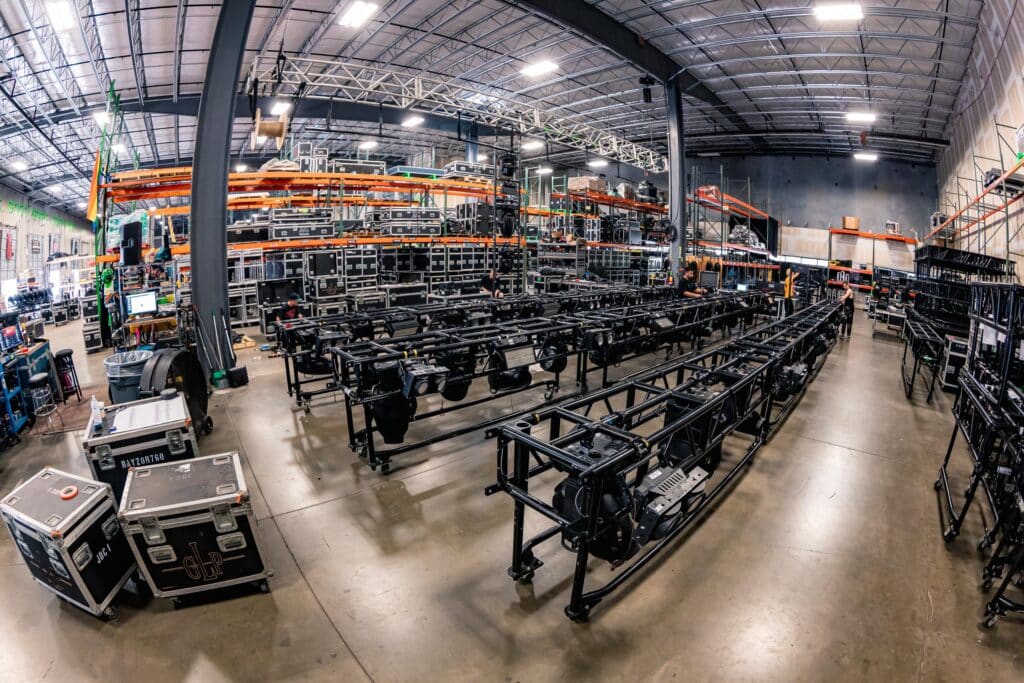
Five new truck bays were added in the process, as well, bringing the total number of bays to 17 — an important upgrade for MMP’s fleet and the increasing number of shows moving through the warehouse each week.
“This growth is a direct reflection of the work our team puts in and the trust our clients place in us,” said Aaron Soriero, owner of Music Matters Productions. “We didn’t expand for the sake of being bigger, we expanded because we needed the space to do the job right. More room means tighter prep, faster turns and better support for our clients.”
Expanding operations
The expanded warehouse and building across the street include additional offices, mixed-use areas and a dedicated repairs department, giving the team more capacity to prep, collaborate, QC and scale for increasingly complex events — both corporate and entertainment.
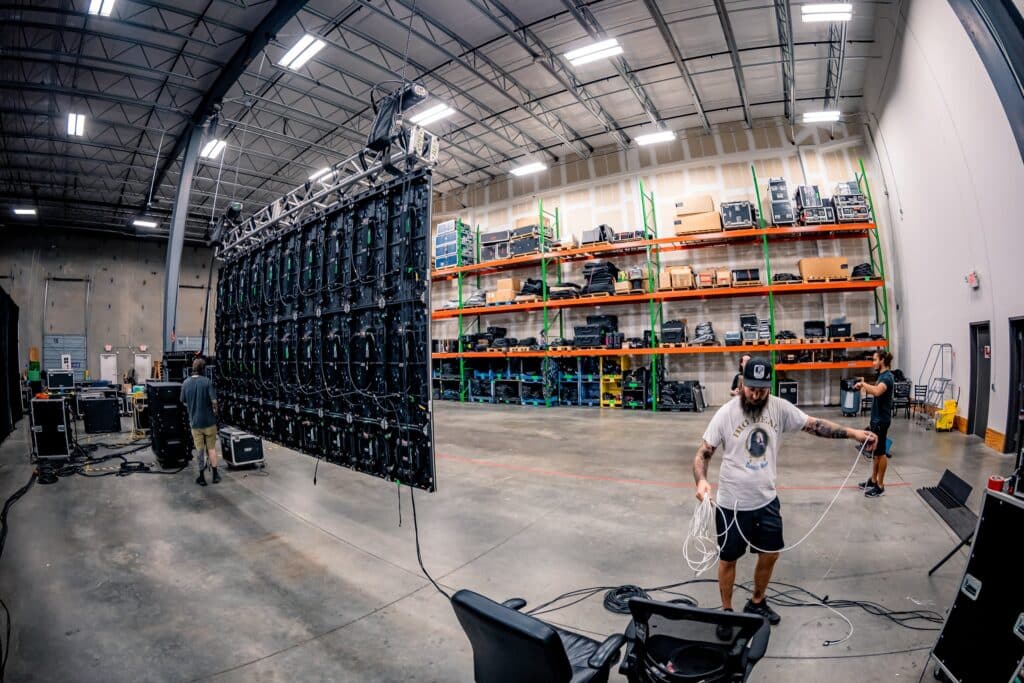
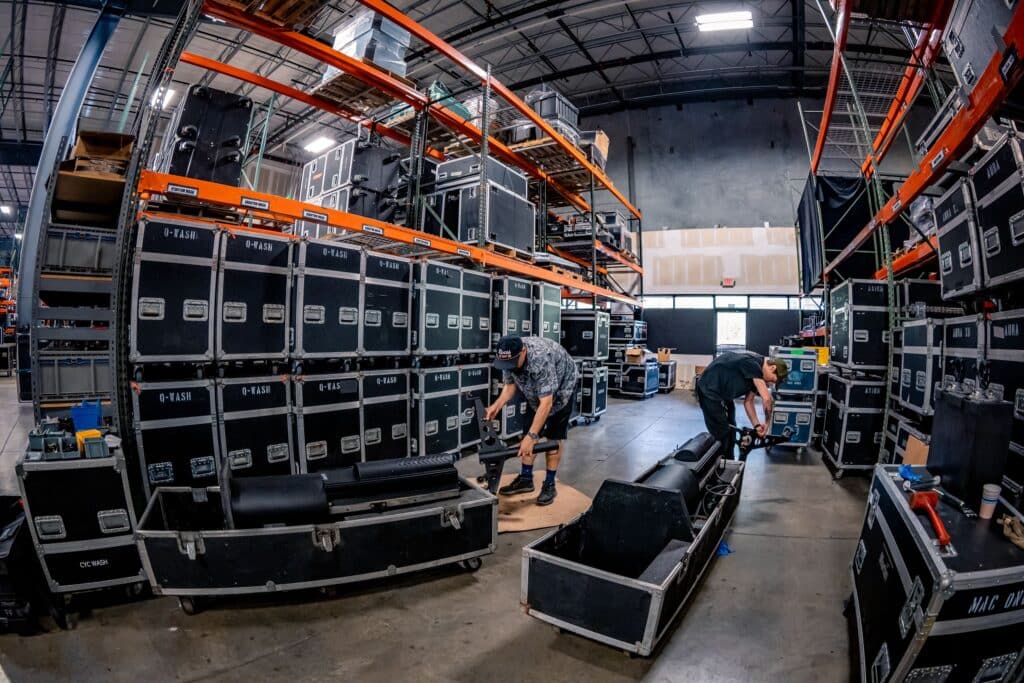
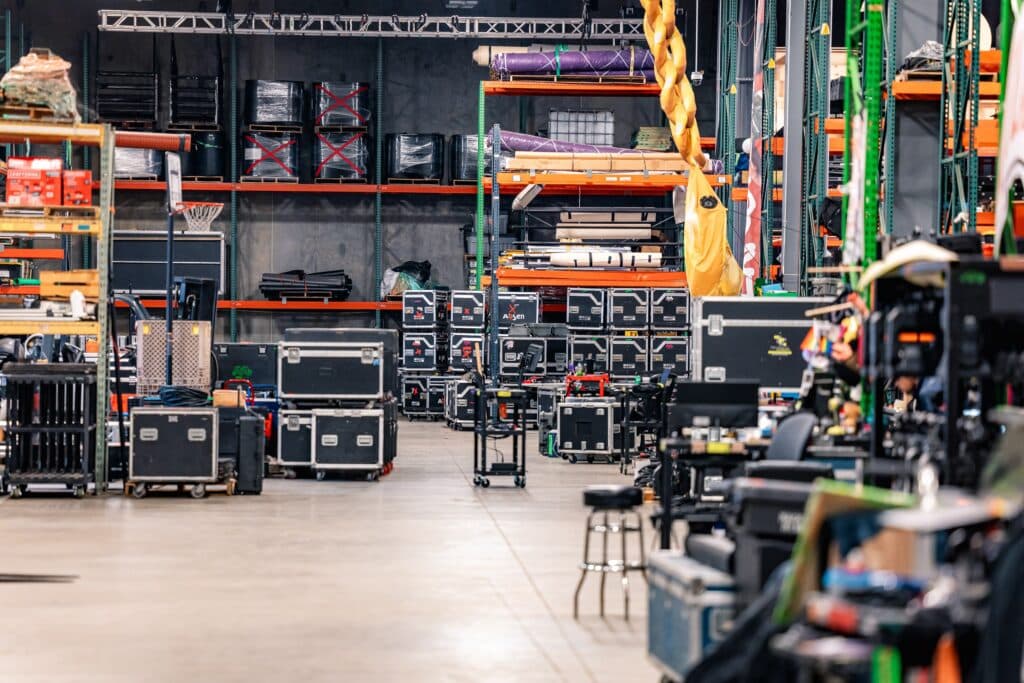
With a reputation built on reliable gear, experienced crews and an enhanced client experience, MMP continues to solidify its role as a go-to production partner for events of every size and setting — whether it’s a beachside festival, a stadium tour, brand activation or a high-stakes corporate show.
About Music Matters Productions
Music Matters Productions is a full-service live event production company based in Peachtree Corners, Georgia, providing industry-leading audio, lighting, video, rigging and staging solutions for tours, festivals, brand activations and corporate events across the country.
Known for its high-end inventory, seasoned crew and deep dedication to doing the job right, MMP supports hundreds of productions each year and is trusted by clients nationwide.
For more information, visit mmp-atl.com.
Related
Business
From Boardrooms to the Himalayas: Vandana’s Journey to Purpose and Growing with Intention [Podcast]
Published
6 days agoon
May 19, 2025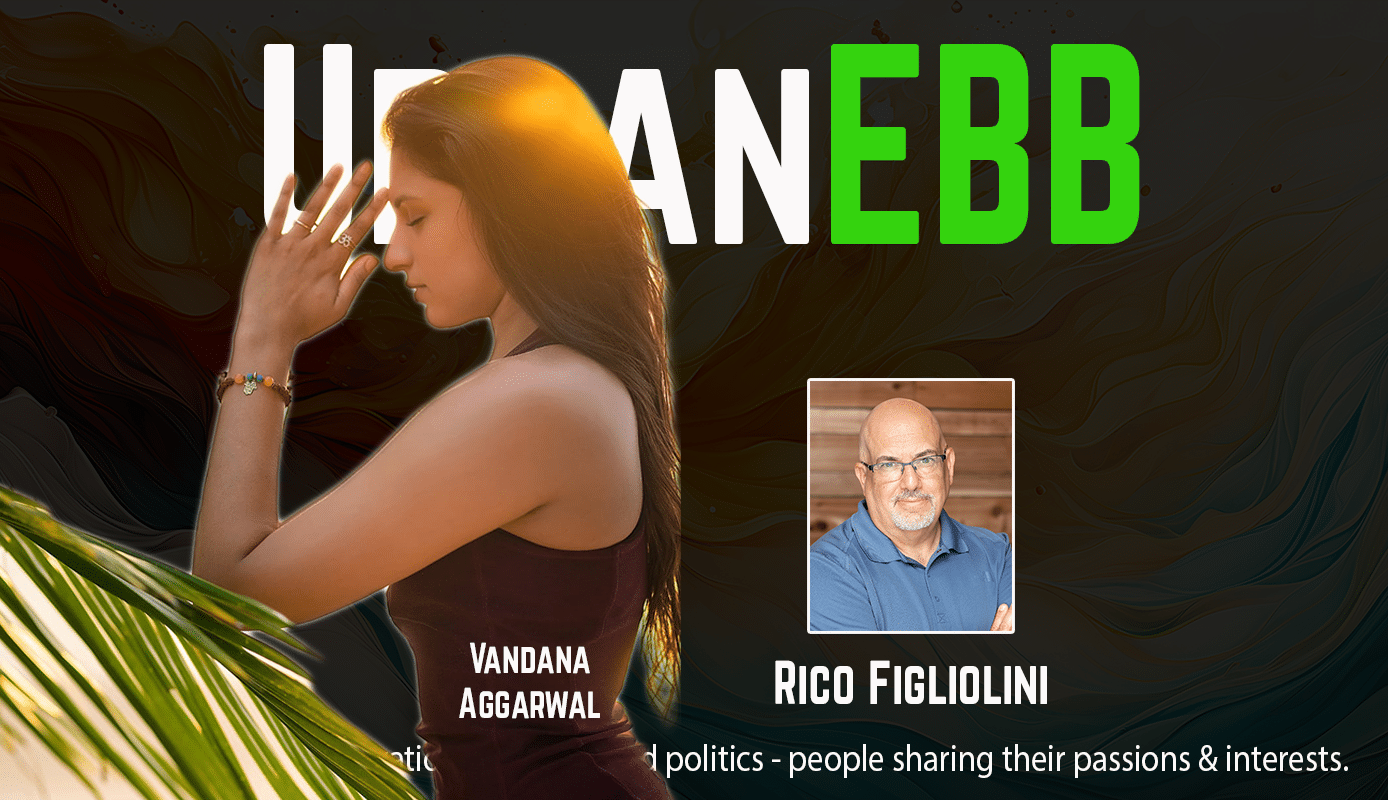
How one family blends operational clarity, conscious leadership, and community-driven values to grow their business — together.
In this episode of UrbanEbb, host Rico Figliolini chats with Vandana Aggarwal, VP of Operations at Aggarwal Real Estate, about the winding road from global consulting to family-run commercial real estate in Norcross, Georgia. With honesty, warmth and insight, V shares how she went from working 80-hour weeks in corporate strategy to rediscovering clarity in the mountains of India — ultimately helping transform her family’s business into a community-driven real estate firm managing over 50 shopping centers.
The conversation weaves together themes of leadership, legacy, operational excellence and the transformative power of both AI and yoga. It’s a story about clarity, courage and conscious growth — both in business and in life. This is another episode you won’t want to miss.
Episode Highlights
- Why Vandana left a high-powered consulting career to join her family business
- How hiking Kilimanjaro and studying yoga in the Himalayas changed her leadership mindset
- The operational overhaul she brought to Aggarwal Real Estate to support growth
- What it’s like working side-by-side with your dad, siblings, and 700+ tenants
- How the company rebranded with intention and built a mission around “building communities as a community”
- Where AI is reshaping real estate—from lease drafting to property management—and where it still can’t compete with people
- Leadership succession planning with siblings at the helm
- The importance of clarity, calm, and conscious growth in both business and life



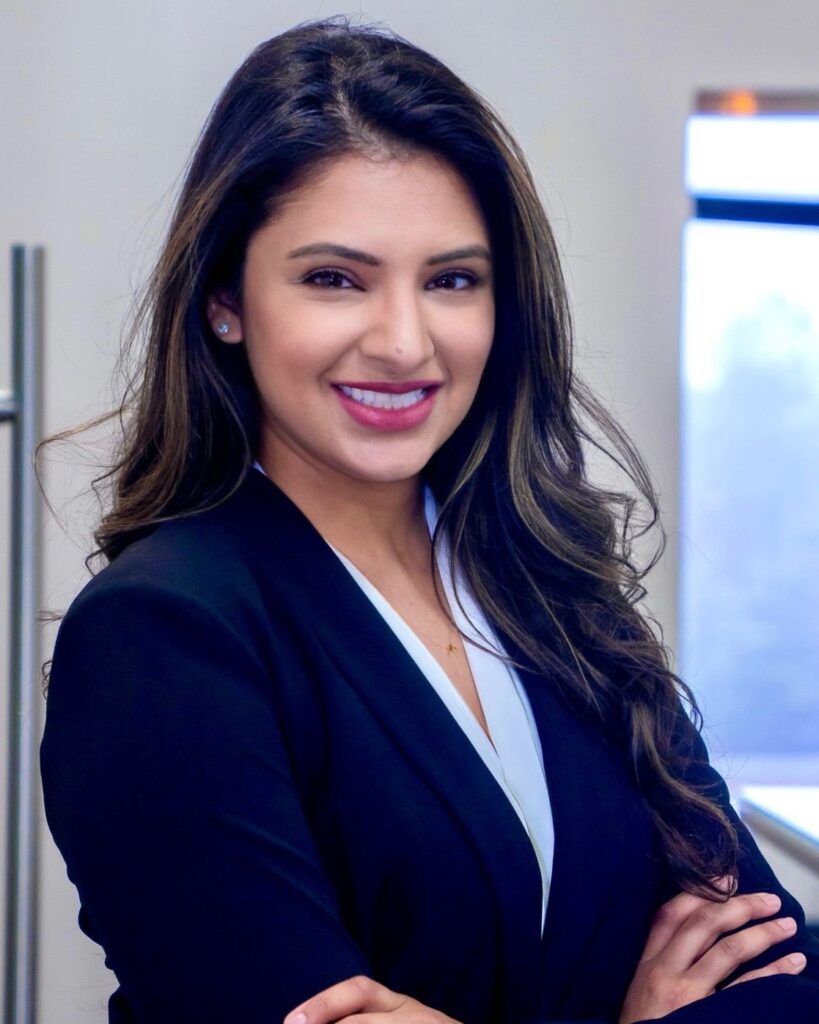




About Vandana Aggarwal
Vandana Aggarwal is the Vice President of Operations at Aggarwal Real Estate, her family’s commercial real estate investment and management firm. She brings a unique blend of strategic insight and operational excellence, shaped by her early career as a consultant at A.T. Kearney, where she advised Fortune 100 to 500 companies. A graduate of Georgia Tech, she also took a transformative detour from the corporate world to spend a year in India teaching yoga—an experience that continues to influence her leadership style today. At the core of her work is a deep commitment to family and a passion for building strong, connected communities.
Timestamp:
00:00:00 – Introduction and sponsors: Vox Pop Uli & EV Remodeling
00:03:12 – From Georgia Tech to global consulting
00:04:23 – Leading strategy for Fortune 500 companies
00:06:11 – The role of vision alignment at the C-suite
00:08:01 – Sabbatical becomes family business overhaul
00:09:35 – Bringing operational excellence to a growing real estate firm
00:12:02 – A year of yoga, nature, and healing in India
00:17:03 – Hiking Kilimanjaro, testing limits, and expanding self-trust
00:18:52 – Navigating family dynamics inside a business
00:21:56 – Planning for leadership transition: siblings, strategy, succession
00:24:06 – Rebranding the business: from American Management to Aggarwal Real Estate
00:26:33 – Where AI fits (and doesn’t) in real estate operations
00:30:04 – Legal, leasing, HR, and marketing efficiency with tech
00:31:01 – Community-focused retail and experiential shopping centers
00:32:00 – Reflections on AI, journalism, and digital trust
00:32:57 – Closing thoughts
Podcast Transcript
00:00:00 – Rico Figliolini
Hi, everyone. This is Rico Figliolini, host of UrbanEbb. This podcast comes out of the city of Peachtree Corners, and we have a special guest today. And if I don’t mess up the name, it’s Vandana Aggarwal.
00:00:15 – Vandana Aggarwal
Absolutely. You can call me V, Rico.
00:00:15 – Rico Figliolini
I’m going to call you V, trust me. And I’m Rico Figliolini, so a bit of a long name there. But V is VP of Operations of Aggarwal Real Estate here, based in Peachtree Corners? No, Norcross.
00:00:30 – Vandana Aggarwal
In Norcross, yeah. Norcross, Georgia.
00:00:32 – Rico Figliolini
Yeah, yeah. Just off 85, and?
00:00:34 – Vandana Aggarwal
Jimmy Carter.
00:00:35 – Rico Figliolini
And Jimmy Carter.
00:00:36 – Vandana Aggarwal
We’re completing each other’s sentences already.
00:00:39 – Rico Figliolini
But where are we doing this? We’re doing this from one of our great sponsors, one of our two great sponsors, Vox Pop Uli. Was this tastefully obnoxious? Let me tell you, I asked them to do a corner cut for us, and this is perfect. So they have the Moxie logo and stuff. So they’re branding, right? Same way they can brand your stuff. They’ll put your logo on anything. They’ve done, I think, 6,000 vehicle wraps. They’ve done garments, obviously. They could do one-offs or they could do 1,000. They do trade show booths, wraps, everything. So anything you need a logo on, think of what object you want it on. They’ll figure it out for you. And if you’re doing, let’s say, 5,000 mailers and you want that database customized for each postcard, they could do that also. It’s called data. I forget what it’s called, but they can do that. They can work the data into the printing as well. So all customizable. Check them out, voxpopuli.com. Now, getting to something we were talking about, hands-on stuff, which is this also. This can’t just be done by machines, right? Although machines, you still need people. But EV Remodeling Inc., they are a remodeling company. They can do design to build. They can do whole house renovation. They can create your deck, your backyard gazebo. They can put a bathroom, kitchen, anything you want. EV Remodeling Inc. is owned by Eli and his family. Lives in Peachtree Corners. It’s based out of our city. They’ve done, I think, over 250 homes recently. So check them out, evremodelinginc.com. And I want to thank both of them for being great sponsors of ours. So, it’s always a long stretch doing that, but I’m glad to have you, V.
00:02:22 – Vandana Aggarwal
I’m happy to be here. Thank you for inviting me onto your podcast. Excited to chat with you.
00:02:25 – Rico Figliolini
Yeah, no, this is cool. Well, you know, I met you, where did I meet you at? I think it was the chamber.
00:02:30 – Vandana Aggarwal
Yeah, the Southwest Gwinnett Chamber event.
00:02:32 – Rico Figliolini
Yeah, and we were talking a bit, and I was like, damn, you know, I had my father owned a business, and he wanted his kids to be in it. None of us, none of us could go into that business. It’s a little difficult, different industry. It was a hard industry, plus my father was very patriarchal, very over-demanding. God bless him. He mellowed in age. But when you were telling me about your family, I mean, your father, your mother, your sister, your brother, and you, I mean, all in it. It’s amazing.
00:02:55 – Vandana Aggarwal
We’re all together. We’re the modern-day Brady Bunch.
00:03:03 – Rico Figliolini
I love it. Yes, that’s exactly it. But, let’s start a little bit. I mean, you were telling me, I mean, you came from a consulting world. You came where you were actually being paid a lot more than you’re being paid right now, actually.
00:03:12 – Vandana Aggarwal
I told my father he couldn’t afford me when he recruited me out. So I graduated from Georgia Tech in 2007. I actually did join his company right out of college for two years, learned a lot about the company. He actually had me go through a rotation in every department of the company to learn more about what we did, how we operated. And I think very quickly, it was also 2008-9 with a recession. But I was also very interested to learn how big companies operate. How can you take a small company at that time? We were much smaller than we are today and really understand how do you go from this, which is where everyone starts, right? As a new company to get to be one of the largest in the nation, in the world and see how they operate, how they grew it from, you know, a mom and pop business to this global enterprise. Consulting was a natural transition to learn about multiple companies, multiple industries. So transitioned into AT Kearney, which has now been rebranded as Kearney, and out of their Chicago office. So I was there for seven to eight years, almost eight years.
00:04:23 – Rico Figliolini
Entry-level position you got in?
00:04:24 – Vandana Aggarwal
Yeah, I went in as an analyst. The good thing with that experience was by the time I left, I was a senior manager with Kearney. I worked across 17 different companies in those eight years. So I got to experience how CPG companies, retail companies, transportation, IT, you name it, I’ve done it. In terms of the different types of industries I got to work with, worked with a lot of Fortune 100 to 500 companies at the C-suite level. So we were coming up with all kinds of strategy projects such as new market entries, mergers and acquisitions. A lot of what I ended up specializing in in those seven years was operational efficiency and growth strategy. So it was an amazing, I’m grateful for that learning experience, the you know the caliber of minds that you work with. You also get to experience what the C-suite looks like. How does the very top operate and then it goes from the top down right? So it is very much led at this very top leadership and you see how companies change in their culture the way they operate based on how the top is designed.
00:05:38 – Rico Figliolini
So did you see good and bad at the top?
00:05:41 – Vandana Aggarwal
Absolutely. And I’m not going to name names. But you learn a lot when you see how your CEO and your C-suite right below them, the culture they’re bringing into a company and their vision and their goals if they’re aligned, unaligned. Anyone that at the very top have different viewpoints of where the company has had it is where companies start to break apart, lose revenue, lose their you know people, which is very important.
00:06:11 – Rico Figliolini
Where did you see the pain point then? What was the common denominator I guess of those?
00:06:18 – Vandana Aggarwal
There’s no one common denominator, but if I had to kind of narrow in, it comes down to what is our five-year, ten-year trajectory? Where are we headed? As large companies grow, you’re not just in one industry. You’re not just doing retail shopping centers. You’re investing in all kinds of properties just to bring it back to our company. Similarly, a CPG company can make all kinds of products, so they have to decide what it is because you have to be concentrated on the right places. If you have a leadership team that is in alignment of what that ultimate goal is, right, then you have clear strategies and, you know, metrics you’re measuring your success against. So that was a big thing that I learned. Also just, you know, seeing how great leaders operate, right? Some of the best in the nation today, I got to be in the room with them and just to see how they lead is very important.
00:07:14 – Rico Figliolini
Did you see any family dynamics in any of those businesses?
00:07:20 – Vandana Aggarwal
No. You know, there may have been like a father-son duo, but when you’re looking at the very top, I won’t say it was like all in the family, right? You know, and it also becomes the size of a company, right? You know, when you get to an international scale, you’re not always blessed that every person in your family has the right skill set and experience to fill each role on that C-suite.
00:07:46 – Rico Figliolini
I’m just thinking Trump for some reason. Every kid has a job.
00:07:51 – Vandana Aggarwal
Every kid has a job.
00:07:52 – Vandana Aggarwal
You had the accent, right?
00:07:54 – Rico Figliolini
Pretty much, I guess. So after the C-suite or expansion, you traveled a lot too, I think, right?
00:08:01 – Vandana Aggarwal
I did, yeah. So after my seven, eight years in consulting, I was reaching 30. And Shiv, my father, came to me and he said, you know, you’re doing this for a lot of outside companies. Why don’t you help us grow and bring your expertise home? And I said, look, I’ll take a sabbatical. Let me assess the company. And after that period where I took a short sabbatical to come look at how we were operating, I said, I can give you three years. I said, you can’t afford me, but I’ll give you three years of my time. And I said, I think it’ll be the right, it was the right time in the company. We were investing very heavily. We were bringing in a lot of new square footage into the company, and we weren’t designed to manage it. So we as a company, as you know, we are the investors. We have an in-house management company, an in-house leasing company. So as we acquire new properties, our team does the management for those properties in-house. We don’t provide third-party services today. And we do the leasing in-house. But at that time, when he, you know Shiv started we had one or two and now we’re at 50 shopping centers plus and other investments that we have. And there’s a very different way you operate you know and how do you how does the CEO go from being an operator to where he’s overseeing it, but he’s not into the weeds right? So he has create a system for that to happen right? You have to have standard operating processes for your property managers, your accounting team, your marketing team.
00:09:35 – Rico Figliolini
And you quite didn’t have that before.
00:09:37 – Vandana Aggarwal
We didn’t, no. And, you know, and I think that’s why he wanted to bring me in is because my strength is operations and I love it. I love going into messy places and cleaning them up.
00:09:49 – Rico Figliolini
Is that what you did when you were a consultant?
00:09:51 – Vandana Aggarwal
A lot of what I was concentrating on at the end of my consulting career, yes. So I did a lot of operational efficiency work. So we’d go in, assess the way companies were designed. And we’d interview hundreds of team members to understand what their role is. You know, what are they responsible for? How are they delivering? What are they measuring for success? And then we’d redesign the way they did that based on, again, bottom line, what are your ultimate goals for the company?
00:10:21 – Rico Figliolini
So you had to understand that before you got to that point. And you’re not making the decisions, the C-level.
00:10:29 – Vandana Aggarwal
Present, right? And similarly even with Shiv, when I first joined, I said, look, this is how I think we need to redesign the company from a bottoms-up perspective based on ultimately our goal of growth, doubling, tripling in size over the next ten years. And I think this is where the father dynamic came in. I guess he trusted me. And he said, do it. He just said, do it. And it was beautiful because right when you’re with large companies, it’s a lot of time before you get. Those decisions made and that trust, right? And so it was great. And he said, yeah, just put it into place.
00:11:07 – Rico Figliolini
See, that’s a great dad, actually. Some dads would be like, I don’t know about that daughter or son or whatever.
00:11:16 – Vandana Aggarwal
It did take time, though, like to ultimately, he was in the operation so heavily. And, you know, until today, I’m still like, step up, step up. Like, I need you to not get into the weeds. Like I think at that time we had tenants calling him, maintenance guys calling him. Like every little and big problem would go through his cell phone. I said, you’re too smart and you’re such a good investor. This is not your skill set. You shouldn’t be managing this. You need to bring people on who are expertise in this area. And I said, you need to be focused on like the larger plan.
00:11:51 – Rico Figliolini
This way you can grow it better.
00:11:51 – Vandana Aggarwal
Which I think has been very successful over the last eight years I’ve been with him now.
00:11:57 – Rico Figliolini
So before you got to him, though, you were traveling a bit internationally as well?
00:12:02 – Vandana Aggarwal
Yeah, yeah. So this is an amazing year. I was very burnt out. By the time I left consulting, I was working 70 to 80-hour weeks, traveling Monday through Thursday, if not more than that, of the week. So I told Shiv, I was like, I’m going to take a month. I’m going to go to India, get my yoga certification. No intention to teach at the time. I just said it’d be a great one-month retreat. And I was up in the mountains like Himalayas and India in a city called Dharamshala. Beautiful place. One of my favorites in the world. And I just, I think I needed it for myself emotionally, mentally to take that break. So I turned one month into one year. I didn’t know it was going to be a year.
00:12:49 – Rico Figliolini
In that same city? In that same town?
00:12:50 – Vandana Aggarwal
Yeah, so I ended up the school that I had gotten my certification with. I asked them, I was like, do you mind if I hang around for a little while? Like very casually, I’m like, you know, I’ll pay for my room and board, but I just want to be around this group and this energy. And they said, well, if you’re going to be here, why don’t you intern? And they’re like, room and board is free if you intern. I was like, sure. You know, not thinking what it was leading to. This is like that beauty of the universe coming into play. Yeah, so I started teaching, ended up loving teaching. So then I ended up teaching the 200-hour yoga training course. And I was in Dharamshala for four months. And then I moved down to Goa, their Goa campus for another six.
00:13:30 – Rico Figliolini
Where is that? Goa?
00:13:32 – Vandana Aggarwal
Goa? It’s in southern India on their west coast. It’s a beach town. Yeah. So I had the mountains and the beach. But I’m a mountain girl. I’m a hiker. But no, it was a beautiful experience. Very different from anything I’ve done with my career, right? But I became a yoga teacher for a year.
00:13:52 – Rico Figliolini
Did that clear your head? Yoga, they say, can do that, right?
00:13:53 – Vandana Aggarwal
Yeah, it’s all the tools of yoga, right? The meditation, the breath work, really getting internal, going in, right? Just going inwards, being quiet, which we don’t have. We have a lot of noise in our life today, you know? And naturally, right? Between family life, work life, social, and then just all of the noise from everything else right? Like we’re sitting here and I can hear the cars right? So you know that difference was when I was sitting there, I could hear the ocean waves and so there’s something very healing in nature naturally. So it was the tools mixed with nature and I still think nature has a very strong healing power on us. So whenever I can, I try to get out on a mountain and by the ocean. But yeah no it was it was a beautiful experience but it did bring a level of calmness into the way I approach things. It changes your perspective of you know at the end everything’s okay. No matter what you’re going through it’s temporary you’re, and everything that’s happening to us is happening to us for the good. We don’t know it, sometimes it seems like a bad situation in the moment, but ultimately you know, universe, God, whatever you believe in is at play to bring you something better in your life. And you just have to step back to understand what is it delivering us.
00:15:19 – Rico Figliolini
I like the way you think. My wife every once in a while would say, aren’t you upset about that? I’m like, I think come tomorrow, it won’t mean anything. There’s no point in, just relax. Not everything, two days later, it’s not as important as it seemed at that moment.
00:15:37 – Vandana Aggarwal
Yeah. And it’s not just that it’s not as important. It’s also like…
00:15:41 – Rico Figliolini
In perspective?
00:15:42 – Vandana Aggarwal
It’s, what am I gaining from this? Like, what can I gain from this? Oftentimes when, you know, a lot of things happen, yeah, like you get hurt or, you know, it’s like in relationships, right? Or if you have a bad business deal, right? It’s like, hey, how am I growing, right? And I think that’s what makes life very exciting, right? Otherwise, if you’re always living on a high, is it a high?
00:16:06 – Rico Figliolini
Yes. So I’m thinking you were a consultant for seven or eight years. 80 hours a week. And all of a sudden you’re doing yoga on the mountains of India. It’s just like, it’s almost like a movie. It’s almost like…
00:16:18 – Vandana Aggarwal
Eat, pray, love?
00:16:19 – Rico Figliolini
Yes.
00:16:20 – Vandana Aggarwal
It was my eat, pray, love moment for a year.
00:16:23 – Rico Figliolini
That’s amazing.
00:16:24 – Vandana Aggarwal
No, you meet amazing people, but I think we were meant to meet everyone that we come in interaction with on a daily basis. You naturally have a connection. There’s a universe at play, and we were meant to cross paths and learn something from each other, gain something from one another, give to the other person. And I think you just have to look at life that way.
00:16:48 – Rico Figliolini
I definitely think along that way. I mean, I definitely think each of us nudges each other in a crowd a little bit. That one nudge can set you off going in a different direction. So I totally believe in that. So you joined your dad. Yes. And you’re, so actually, even before we get there, so yoga, but what other interests have you been?
00:17:03 – Vandana Aggarwal
Yeah. So, I mean, I’m an avid hiker. I’ve done recently in the last few years, I’ve climbed Kilimanjaro. I did the Machu Picchu trail. I’ve done a few 14ers out in Colorado, but I like to test myself physically. You know, just, again, it comes down to how do we find that push within us past our comfort zone? So is this a physical inability or is it a mental constraint? So to get past that mental constraint of discomfort and then really push yourself to the next level and say, I can achieve something. It’s not going to be easy. So to me, if I’m on a hike and it’s not hard, I’m like, well, was it a hike? Like it didn’t test me, but no I think, you know.
00:17:55 – Rico Figliolini
You should do the Appalachian Trail. That’s like 2000 plus miles.
00:18:03 – Vandana Aggarwal
I know. And it is, you know, it’s not just like the hiking part. It is like living out in nature and, you know, sleeping in uncomfortable conditions. Yeah. Walking in the rain. It’s cold. I think the last day of our Kilimanjaro hike, it was negative 20 degrees up in the mountain and my eyelashes were frozen and I couldn’t feel any part of my body. And, you know, and it tested my breathing. And there is that element of push yourself to the point that it’s not your ego anymore. Like if your body’s saying stop, you have to stop as well and respect your body. But yeah, to really test yourself.
00:18:38 – Rico Figliolini
To circle all that back now, you’re back home. You’re working with your father and your family. A lot of businesses grow or die because of family. If it’s a family business, right?
00:18:52 – Vandana Aggarwal
Absolutely, yeah.
00:18:53 – Rico Figliolini
So you have your highs, your lows, your, sometimes you don’t get along. Sometimes decisions are split. People get upset with each other. So you’ve been at your highs and lows physically and mentally doing other things. Has that helped you in some ways? Not that you’re having a bad time with family. Because it sounds like you all fit just fine, like the Brady Bunch.
00:19:15 – Vandana Aggarwal
Let’s keep it that way. No, I mean, there’s multiple dynamics at play. It is a family business. My father is also my boss. My siblings are also my friends and my coworkers. And it’s about no matter how hard you try, you cannot separate those relationships. There is an interplay of all of it when you spend eight to nine hours a day together. But we all have, again, a common goal for the company. And then a common goal for our personal relationship. So when we sit down, we keep in mind that we like each other and we want to keep it that way. Like very simply put, that’s first and foremost for me especially. Even when Shiv had brought me in, he said, oh, can you manage everyone? And I said, I’ll manage everyone but my brother and sister. I said, you know, like I won’t jeopardize the relationship I have with them as a sibling by being their manager. Especially because I said that’s your job like good luck. But not just that it’s you know we all have different skill sets so I said how do I manage my brother who is a genius he’s a CPA by trade you know like I can’t tell him how to run the financials of this company like he’s supposed to teach me that right? And same way I teach him that. My sister has a master’s in marketing right? She is by far the most social, likable person you’re going to meet, and she knows how to work with people. I said, she needs to teach us that. So I think we’re lucky that each of us, and this is, I think, rare, where you have three kids and each one of them has their own skill set. That, I think, helps us stay in business and we see ourselves foreseeably into the long-term future being in business together is because we each bring something very unique to the table. Ultimately we value the relationships that we have on a personal level as a family above all else right? And then you know the element of like, how does the yoga experience a hiking experience teach us. That’s, it’s not specific to anyone’s situation, I think it’s a baseline of who you become right? The foundation. Like it teaches you patience, it teaches you again, everything is temporary so let’s not get overly attached emotionally or get upset or too joyful, even like, let’s just stay neutralized on any situation because it will end. And then the next one will come up and kind of flow with the ebbs and flows of the ocean. You, you flow with everything that comes with you, comes your way at work, at home. But yeah, I mean, we do sit down as a leadership team. I, my father and my siblings and I, and we talk about, hey, we separately do the exercise. Where are we going to be in five years? What role do we play in that journey? And thankfully, all of ours are very similar in what our goals are. And then we have different skill sets that we bring. So even as we design the future of the company in a moment where my father is not at the head of the table, we’re working on that redesign work. But it’s very conscious. It’s very intentional. Again, we all step back and say, hey, look, how do we maintain, how do we solve problems? Because like, you know, we were talking about how tomorrow we may not agree on something, a big decision. What are we investing in? Come back to, you know, right now Shiv gets to make an ultimate decision because he’s the one leader at the top. Tomorrow it’s going to be three people at the top. How do you deal?
00:23:04 – Rico Figliolini
So is there an exit plan for your dad? Well, not an exit plan.
00:23:09 – Vandana Aggarwal
Not an exit plan. He already has. I think he, you know, he’s gone from, he’s the hardest working person I know. I get that from him. We’re addicted to work.
00:23:18 – Rico Figliolini
80 hours a week.
00:23:21 – Vandana Aggarwal
We love working. You know, this company is his baby. I think I’ve adopted it at this point and we all have. But, to stay mentally sharp, to stay alive, you have to keep working. You have to keep doing something. You have to be working towards something that brings you joy and purpose. And I think, you know, he stepped back to take time towards a lot of his nonprofit work, community work that he’s very much engaged with. But he’s still at the top. He’s still running, you know, his, you know, he’s, you know, not slowing down. You know, we’re constantly growing. We’re growing this year in a large scale, which is amazing, and he’s leading that charge.
00:23:59 – Rico Figliolini
How many properties do you own?
00:24:02 – Vandana Aggarwall
Today we have 50 shopping centers and then a few other assets.
00:24:06 – Rico Figliolini
Is that like 3 million square feet or something? 4 million?
00:24:10 – Vandana Aggarwal
Yeah, over 700 tenants. But, you know, when we sat down a few years ago, we rebranded. Aggarwal Real Estate didn’t exist until two years ago. It was American Management Services. And we had a rebranding effort because we said we want the company’s name and the brand to represent who we are.
00:24:33 – Rico Figliolini
I like that, by the way.
00:24:35 – Vandana Aggarwal
Yeah, it needs to mean something. And we were also proud of what our father has achieved, right? He’s given us this beautiful life that we get to help grow upon. So we said it needs to pay homage to him. So we said, let’s make it Aggarwal Real Estate, ARE. And then as we were deciding what that vision is, we’re a family. In the company, we are a family, not just the four of us, but all of our staff, our team. We don’t, you know, we don’t look at them separate from who we are. And so we said our mission as a company is building communities as a community. And it talks about, hey, in all of the real estate work we’re doing, we try to make sure all of our properties are beautiful. Our tenants are happy. They have direct access to each of us in the company. And on top of that, as a company, we are a community within ourselves because we can’t create them until we are one. So it was very intentional to who we already were, but putting it into brand terms.
00:25:37 – Rico Figliolini
It’s amazing. All that property, tenants. Can’t imagine father tech can send text messages on all their problems, if they have any.
00:25:45 – Vandana Aggarwal
He’s a brilliant man.
00:25:45 – Rico Figliolini
You could be too possessed on that stuff. We want to be cognizant of our time together.
00:25:55 – Vandana Aggarwal
Absolutely.
00:25:57 – Rico Figliolini
So the next subject really was going to be about also AI, because everyone’s talking about AI. We were talking about that before the show started, before we started recording, which was kind of funny because V was asking me if we edit anything. And I was like, no, straight through.
00:26:11 – Vandana Aggarwal
I wanted to see if I could say a few things and then have it taken out of this conversation.
00:26:13 – Rico Figliolini
Nope. Nope. Doesn’t work that way. So, but ChatGPT, AI, that’s all. I mean, you know, could I create a bot to edit this? Probably. But there’s so many things we use in our lives. And you’ve been talking about how it would affect your business. Nevermind the consulting work you did.
00:26:33 – Vandana Aggarwal
Yeah. I mean, the consulting world is, I mean, it depends on the industry, the type of work you’re doing. In real estate, I’ve put a lot of thought behind this. There’s a lot of conversations happening across every industry, every sector, whether it’s education, automotives, real estate, et cetera. Everything’s being discussed. How is that changing the future? How do we incorporate it to be more efficient, right? Be the best in the industry that we can be or operate better. And so for me it’s again comes down to that operations element that I think about like, how do I incorporate it for a company that’s a medium-sized real estate firm today as we become a large company, a bigger player in the market. And people are very important in real estate right?
00:27:17 – Rico Figliolini
Talk about editing?
00:27:20 – Vandana Aggarwal
I was telling you, we should bring them into the podcast.
00:27:27 – Rico Figliolini
We’re going to run a little longer on this.
00:27:36 – Vandana Aggarwal
But let’s take retail shopping centers. This is brick and mortar. I did a paper actually for a large mall retailer back in my consulting days on how the title of the paper was, is brick and mortar dead? And, you know, full circle, I am fully dedicated to brick and mortar, retail, office, multifamily now. But you still need people to clean up your properties, fix your maintenance issues. We were talking about roofing, plumbing, electrical. That is hands-on work. You know, today there is, it’s going to be a long time before there’s a robot that comes in to do that. There will be. I don’t know. I do not see that in 10 years to say we’ve got roofers that are robotic drones that are going to come fix my roof problems.
00:28:24 – Rico Figliolini
Zumbas, they’re going to run around the roof or something.
00:28:26 – Vandana Aggarwal
That’s actually genius. A Zumba for my roof.
00:28:31 – Rico Figliolini
Why not? Attach it to the right thing.
00:28:33 – Vandana Aggarwal
But so those are very people-oriented roles today. Technology will advance how quickly it’s done or how well it’s done. But you’ll still need someone to operate the machinery of it and everything.
00:28:49 – Rico Figliolini
Just not as many.
00:28:50 – Vandana Aggarwal
Yeah. Construction, similarly, right?
00:28:54 – Rico Figliolini
Unless you 3D print a house. I’m sorry.
00:28:56 – Vandana Aggarwal
No, it’s true. It’s true. There’s so many options. I’m thinking 10 years now. I’m not going to have a 3D printer making the metal framing for my new construction project. You know, or installing the sheetrock, it does probably speed up the process, right? There will be machinery to help with that, a lot of AI development in that way. It’s a lot at an office administrative level, right? The speed in which you’re processing invoices, the speed in which you are, you know, getting payments taken in. Today, I would say as far back as right before COVID, we were still accepting checks for money. Now it’s all online. Like we do not accept money coming into the office, or it’s very limited to what we do, right? So that’s AI, if you think about it, right? The ability to pay online.
00:29:42 – Rico Figliolini
QuickBooks Online uses AI now, you can enable it.
00:29:47 – Vandana Aggarwal
So we’ve been using it for many years. The advancement of it has been a little bit slower, and now it’s sped up. Marketing, we were just talking about how you created a flyer on ChatGPT, was it?
00:30:00 – Rico Figliolini
I won’t talk about the student that’s helping us out here and how they use AI.
00:30:04 – Vandana Aggarwal
No, AI in school, right? But yeah, it’s an AI processor for my HR roles, right? Instead of reading 100 resumes, it’s going through the system to filter them out. Whether it’s writing contracts, I won’t lie. Legal jargon is coming out of ChatGPT today. And so it’s speeding up the way we’re doing work. But my legal team probably, and they won’t say it, should be using AI if they’re not. To help create some of this work right? So it’s like these companies are still going to be needed, but the way that they’re able to respond to us at a quicker, everything would just happen faster right? From typewriters to computers, everything.
00:30:49 – Rico Figliolini
Especially if they know that they just did a lease from you for this property in Texas, that we need three more leases done for three other places, it’s not going to be that much different, right? It’s a template.
00:31:01 – Vandana Aggarwal
It’s coming out a lot faster. Yeah, I mean the negotiations, that’s a people-to-people thing right? So I think thankfully in the real estate world we’re still going to need people. We’re still going to need buildings right? The way built, we were just talking about how a retail shopping center is no longer just for shopping. It has to be for entertainment. It has to be for bringing families in and giving them more than just, hey, go into a TJ Maxx and buy something, right? It’s like, what else are you getting when you’re at that center? Whether it’s a play space or events, we’re starting to do more events at our shopping centers. So it’s, again, serving the community.
00:31:39 – Rico Figliolini
We’re seeing that more. More of that happening. We could go on and on here.
00:31:46 – Vandana Aggarwal
Chatting with you.
00:31:46 – Rico Figliolini
Yeah, and we should probably do one on either AI in the marketplace. Or maybe a panel discussion on something similar.
00:31:51 – Vandana Aggarwal
Yeah, overall, yeah. That would be exciting.
00:31:55 – Rico Figliolini
Yeah, I think that would be cool.
00:31:56 – Vandana Aggarwal
I think it’s interesting to learn about kind of where every industry is heading. It impacts all of us.
00:32:00 – Rico Figliolini
For sure. I mean, the magazine business, I mean, it’s all like we have certain, we have AI rules. But, you know, AI is still being used to degree to research things. And to do certain things like that. You know, hopefully journalism isn’t just handed over. They do say 40% of the internet is AI written. So, which is kind of incestuous almost because it’ll just feed on itself at some point.
00:32:27 – Vandana Aggarwal
There’s a whole discussion about the validity and the trust behind digital content. In the next few years. I think it’s going to diminish.
00:32:35 – Rico Figliolini
Oh, yeah. I mean, I’m seeing videos now and it’s just like, it just looks so real. And you could not tell the difference, even voice-wise.
00:32:42 – Vandana Aggarwal
And that’s scary to think. It’s like, how do you trust what you see?
00:32:47 – Rico Figliolini
So on that note, and since this is not edited, so this is right from the beginning. So this is all true. But I want to thank everyone. I want to thank you, V, for being with me.
00:32:57 – Vandana Aggarwal
Thank you so much for having me. This was a great conversation.
00:33:01 – Rico Figliolini
It went by way faster than some of these go. So this is a great discussion. Thank you, everyone. I appreciate you for joining us. Thank you for Vox Pop Uli for the studio look and for letting us do it here, for being a sponsor and for EV Remodeling. Also, I want to thank Jeremy Pruitt behind the camera who has taken care. He’s a Paul Duke student. And it wasn’t him that I was talking about before, by the way. But all the work he’s done on the back end on this. So thank you, Jeremy. So thank you all. Thanks for being with us.
Related
Business
Peachtree Corners Grows Business Opportunities Through Economic Development
Published
3 weeks agoon
May 6, 2025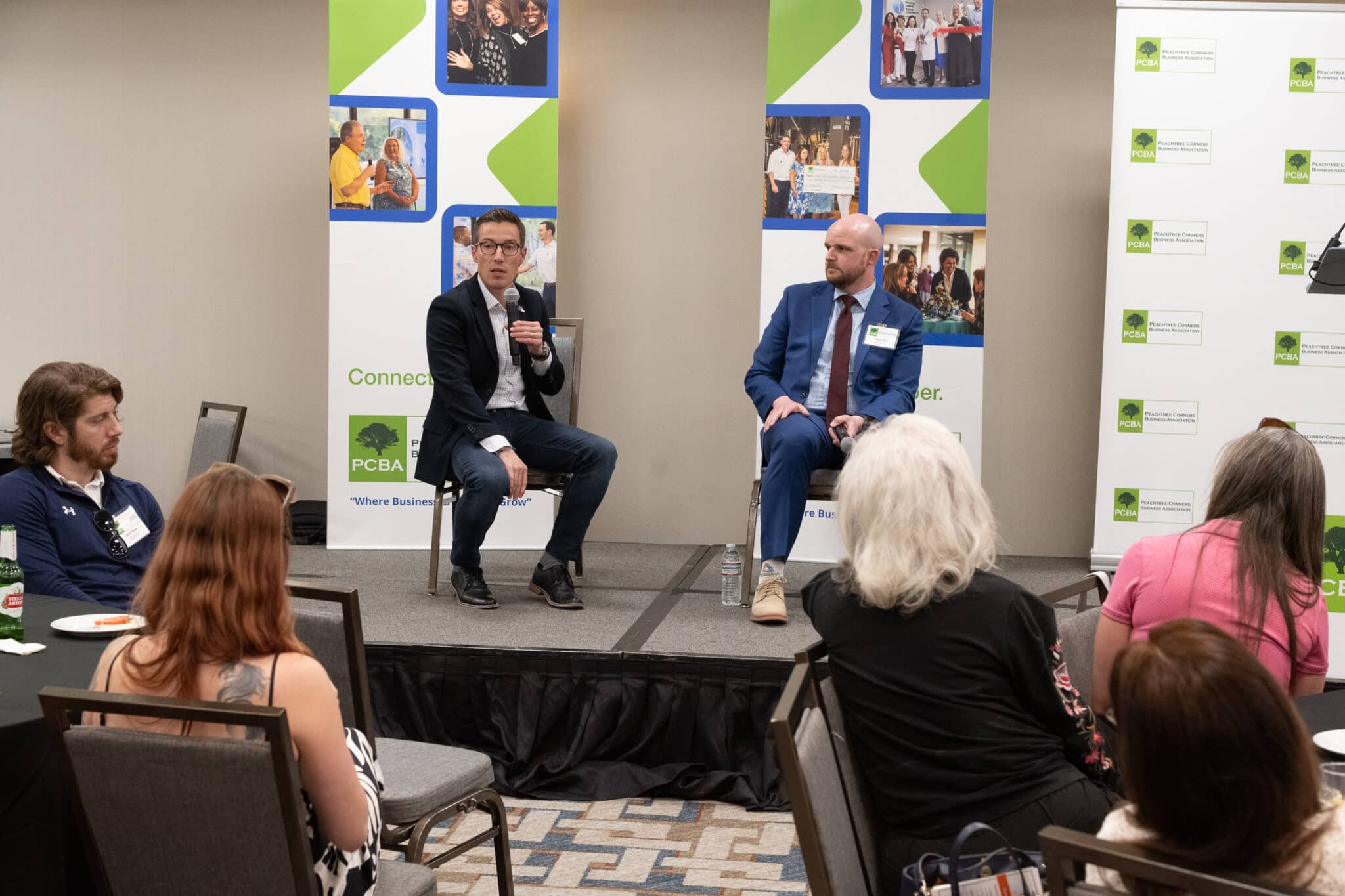
Most residents and business owners in Peachtree Corners probably think they know all about the economic development and strategic planning of Peachtree Corners, but do they really?
Peachtree Corners Business Association invited Peachtree Corners Economic Development Director Betrand Lapoire and Partnership Gwinnett Director of Economic Development Andrew Hickey to its After Hours Speaker Series on March 27 to discuss the city’s growth from a 1971 master plan to a bustling city with 42,000 inhabitants and 40,000 jobs.
Key points included the importance of business retention and expansion, with 24 projects last year creating 1,600 retained jobs, 1,600 new jobs and $250 million in new capital investment.
The Curiosity Lab, a world-class innovation center, was emphasized as a significant attraction. The city’s zoning and infrastructure plans were also discussed, focusing on balancing office and residential development to maintain a vibrant, sustainable community.
Matching jobs to residents
Although Peachtree Corners is just a teenager in terms of being an incorporated city, the foundation for this vibrant, fast-paced economic hub was laid more than 50 years ago by technology pioneer Paul Duke.
“Peachtree Corners was the first master-planned, business innovation technology park in metro Atlanta,” said Lapoire. “It was in response to the brain drain of technology with Georgia Tech graduates leaving the area.”
While the city may have a small-town feel, it’s the largest in Gwinnett County by population, but not land mass, he added.
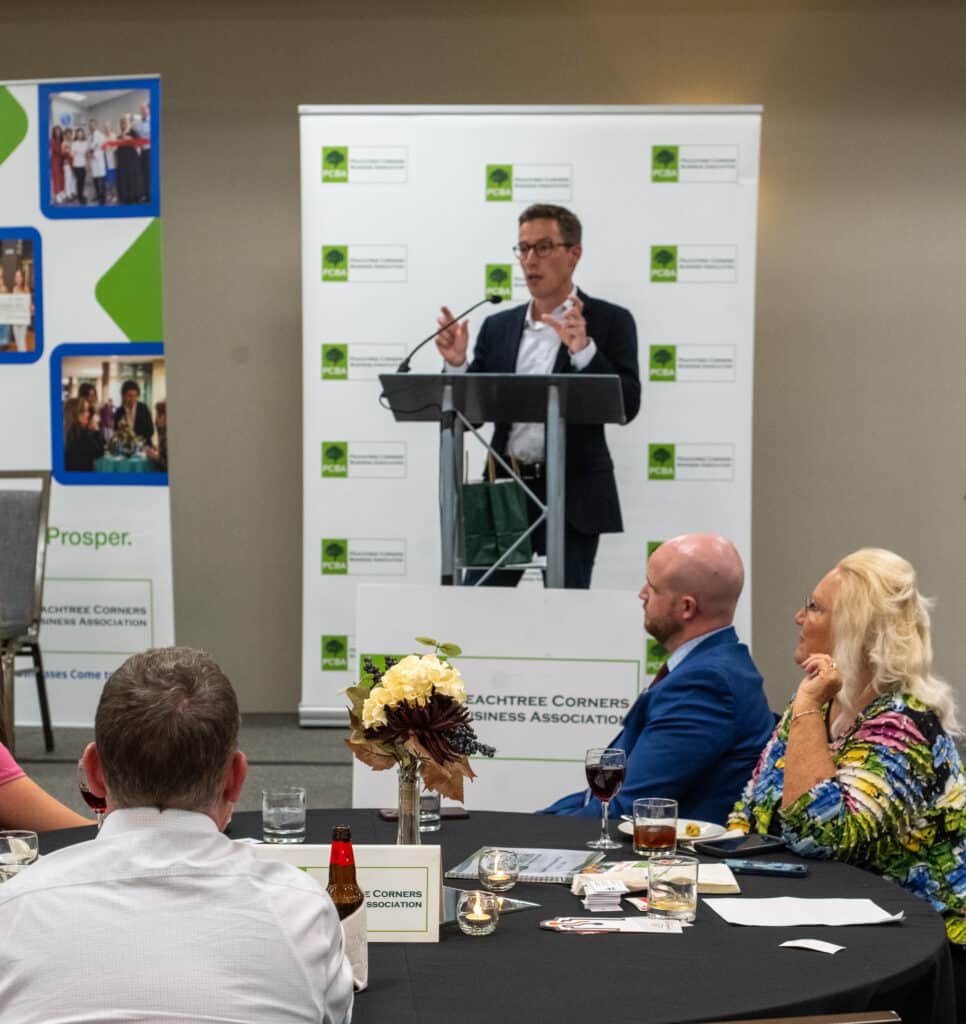
“The city started from a commercial, industrial, R&D base and then was expanded around it,” said Lapoire.
Though home to more than 42,000 residents, most of the jobs in Peachtree Corners are filled by people who live outside the city, he added.
“So we have this interesting mismatch, in a way, although not unusual,” said LaPoire. That creates traffic and transit issues. So that means that one of the solutions is to create more jobs here to fit the profile of the community.”
He presented charts that show professional services, consulting and engineering as the largest job categories. The next tier of businesses are wholesale and manufacturing.
“So we have a good mix of industry,” he said.
A five-year plan
The city has a five-year economic development plan (2023-2028) that outlines strategies for attracting and retaining businesses, with education and workforce development being key components.
Partnership Gwinnett has similar goals as Peachtree Corners, but on a larger scale.
“We are the county’s sales and marketing arm for all 17 cities now, and we receive funding from both municipal sources as well as existing businesses here — both in Gwinnett and outside of Gwinnett as well,” said Hickey.
He shared how Partnership Gwinnett is designed to drive a lot of major corporations toward doing business inside and with Gwinnett County.
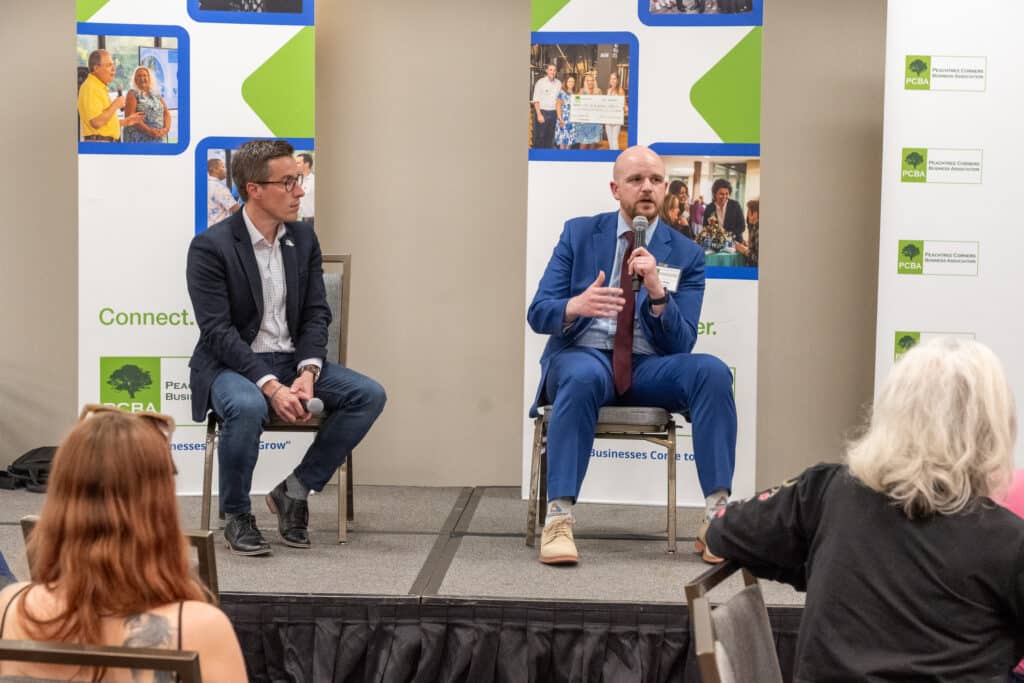
“One of the biggest things that we talk about that I’m sure it seems like most of us here, if you live here, you work here, you understand it. It’s the diversity that exists here in Gwinnett,” he said. “With a diversity index of 85, that means if we walk out of the Hilton here and we say hello to somebody, there’s an 85% chance they’re from a different ethnic or cultural background than ourselves, which to you and I may seem normal because that’s the life that we live in.”
He added that for companies, there’s a tremendous value in that, whether they have stated values, or they’re just making hiring decisions to get a wide range of candidates to fill those roles. Additionally, because of the proximity to Atlanta, Gwinnett County has a great labor draw.
Partnership Gwinnett
Partnership Gwinnett plays a significant role in recruiting businesses, expanding existing companies and developing the workforce. Hickey showed how the organization was involved with more than 24 projects last year.
“A majority of those were expansions, and that is a common thread you’ll see in economic development,” he said. “In business retention, expansion is so vital to working with our existing companies to make sure that they have the resources they need.”
He added that’s what leads to new investment and job creation in the community.
The organization also focuses on redevelopment projects, working with cities and the county to improve infrastructure and community amenities — especially strong educational institutions such Georgia Gwinnett College, Philadelphia College of Osteopathic Medicine and others.
Quality of life
In closing, both men stressed the importance of recruiting companies and developing the workforce, along with one aspect that means a lot but may not be as obvious — quality of life.
“It’s definitely evident that people like to work where they live — the whole live, work play experience,” said Hickey. “I joke that the part that people really have the most questions about, and are most excited to learn about, is new events at The Forum or Gwinnett Place Mall.”
Although they want to know what’s the next major company coming to Gwinnett, people REALLY want to know about how to spend their leisure time.
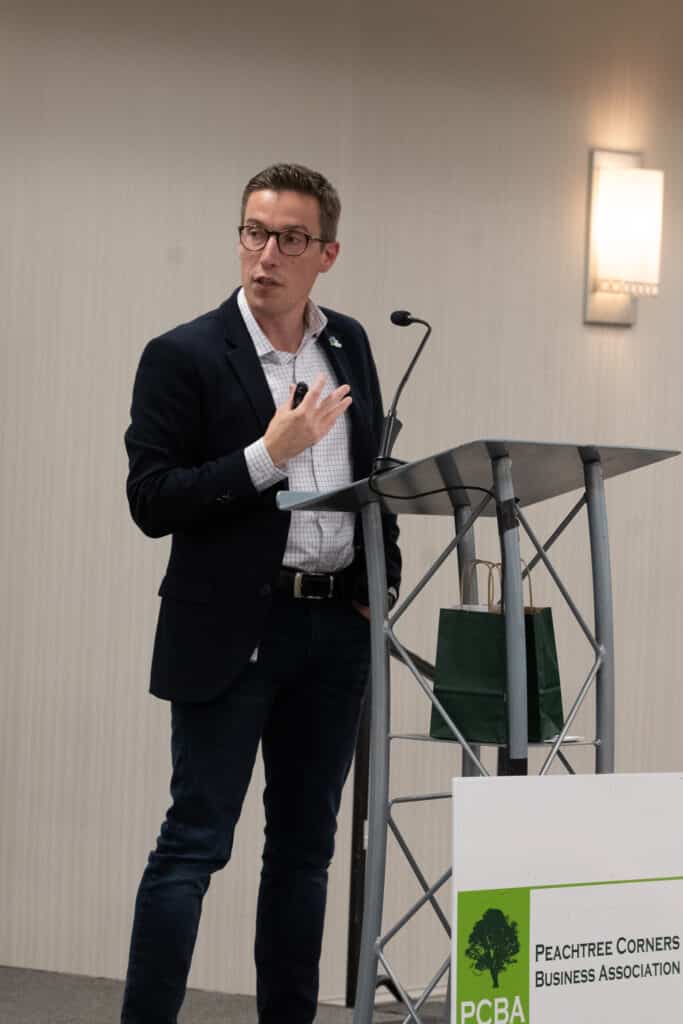
“That speaks to the importance of ensuring that we have a great community,” he said. “So at Partnership Gwinnett we work with all of our cities, and the county government as well, [on] a kind of a best-practices trip.”
He added that the peer tour allows everyone to know what the neighboring communities are doing and share the good news.
“We will take all of these elected officials, but also city staff, to different cities across the Southeast,” he said. “Last year, I believe they went to Huntsville, and have been to Greenville, Chattanooga — all cities that have done some really cool redevelopments that have taken their city to the next level. Our goal is to learn from them.”
Related
Read the Digital Edition
Subscribe
Keep Up With Peachtree Corners News
Join our mailing list to receive the latest news and updates from our team.
You have Successfully Subscribed!

Peachtree Corners Hosts Discussion About the Future of Local Policing

MomoCon 2025 to bring 60,000 Fans to Atlanta for a Weekend of Cosplay, Animation, Gaming and Music

D1 Training Brings New Fitness Concept to Peachtree Corners

Atlanta’s Dog Howl-O-Ween Festival Moving to Peachtree Corners for 2025

From Boardrooms to the Himalayas: Vandana’s Journey to Purpose and Growing with Intention [Podcast]

Local Special Olympics Pickleball Team Honored with State House Resolution

Brandon Branham Honored for Transformative Leadership in Peachtree Corners

Music Matters Productions Expands Peachtree Corners Headquarters

Celebration and Community: ICAGeorgia Wraps Up School Year with Two Festive Events

Guardians of the Jukebox to Play the VoxStage on May 31

Music Matters Productions Expands Peachtree Corners Headquarters

Brandon Branham Honored for Transformative Leadership in Peachtree Corners

From Boardrooms to the Himalayas: Vandana’s Journey to Purpose and Growing with Intention [Podcast]

MomoCon 2025 to bring 60,000 Fans to Atlanta for a Weekend of Cosplay, Animation, Gaming and Music

Local Special Olympics Pickleball Team Honored with State House Resolution

Atlanta’s Dog Howl-O-Ween Festival Moving to Peachtree Corners for 2025

Light up the Corners [Video]

Capitalist Sage: Business Leadership in Your Community [Podcast]

Cliff Bramble: A Culinary Adventure through Italy

Top 10 Brunch Places in Gwinnett County

A Hunger for Hospitality

THE CORNERS EPISODE 3 – BLAXICAN PART 1

Top 10 Indoor Things To Do This Winter

The ED Hour: What it takes to Remove Barriers from Education






